Isaac Dunbar Takes Our Pop Quiz
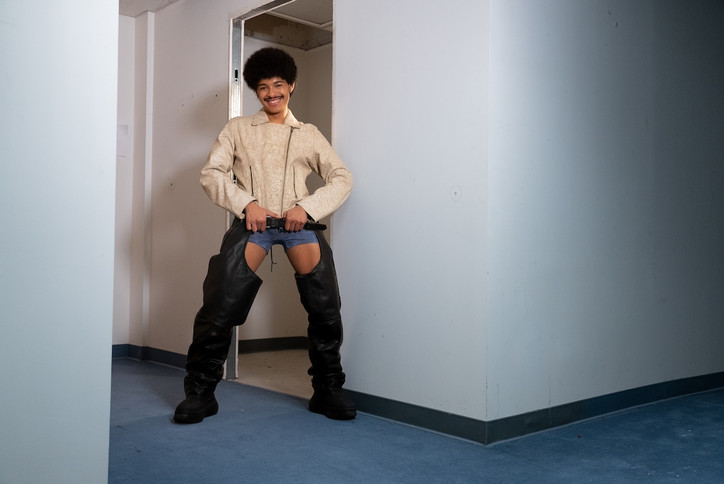
office gave Isaac an impromptu pop quiz where there are no wrong answers... except, of course, the wrong ones.


Stay informed on our latest news!

office gave Isaac an impromptu pop quiz where there are no wrong answers... except, of course, the wrong ones.

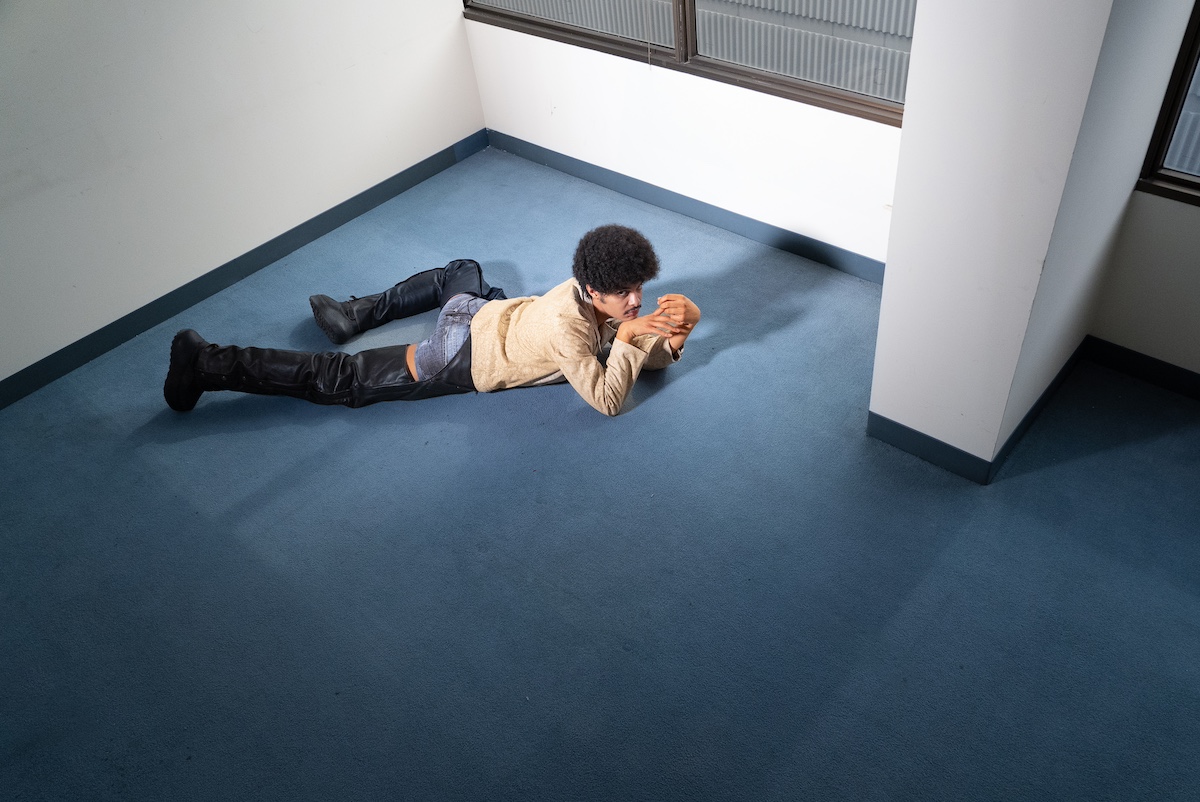
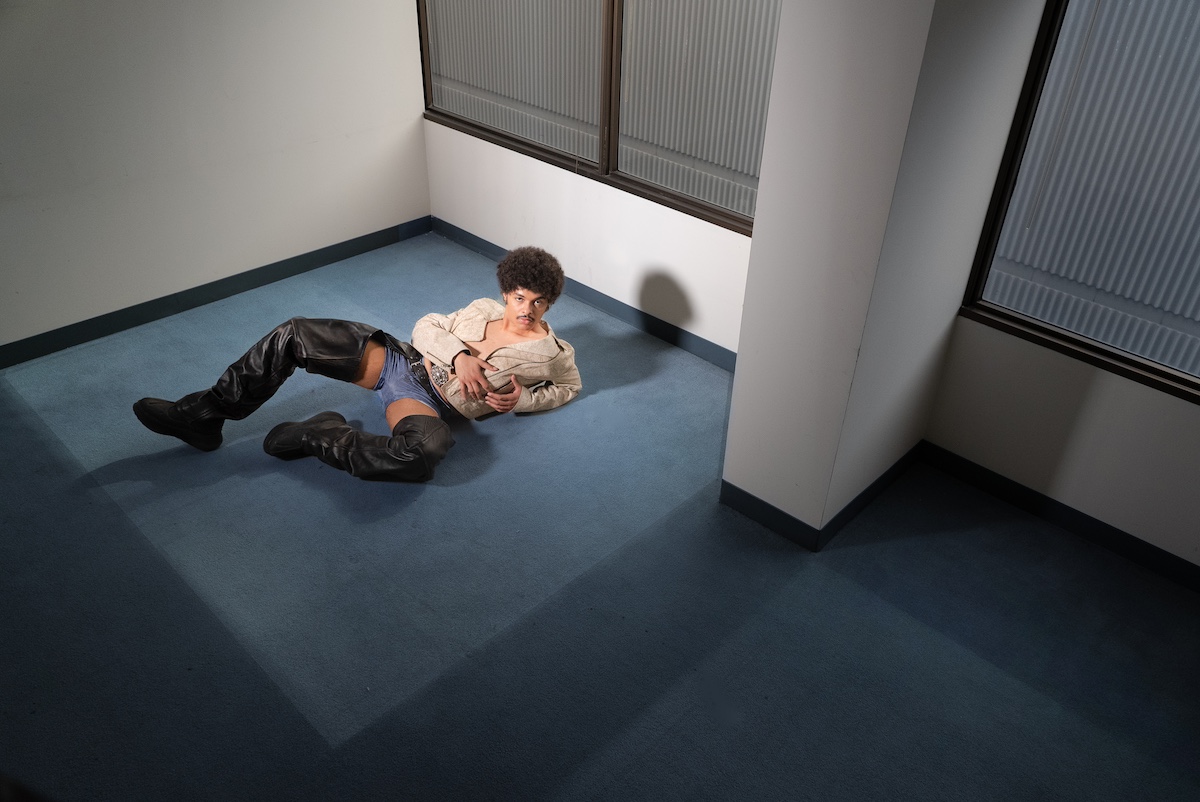


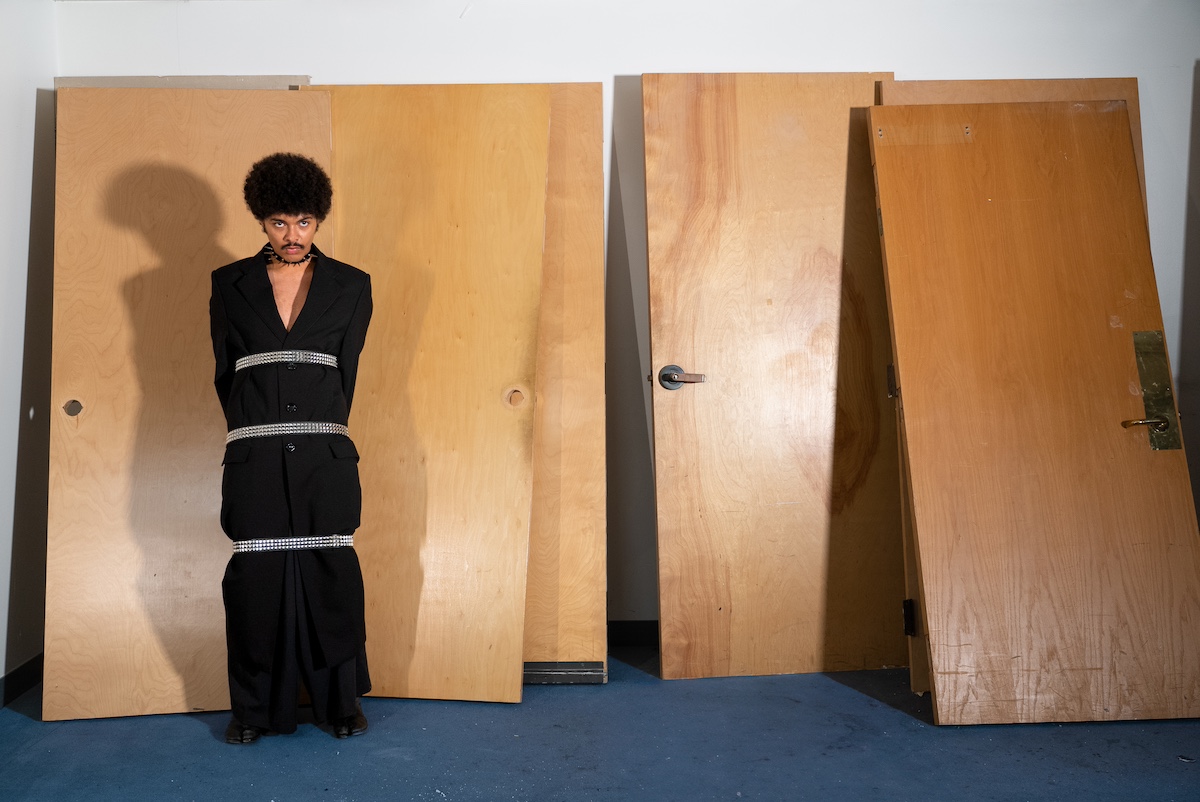
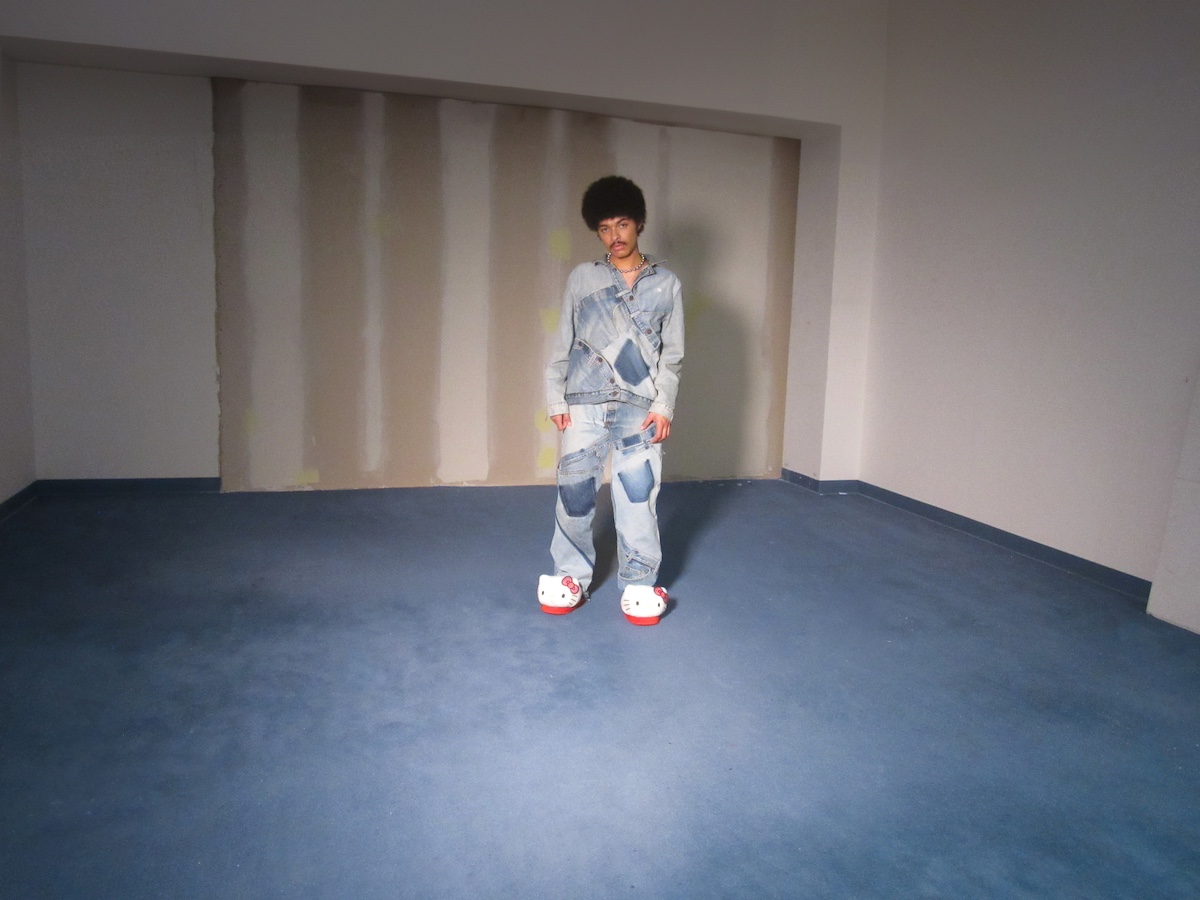
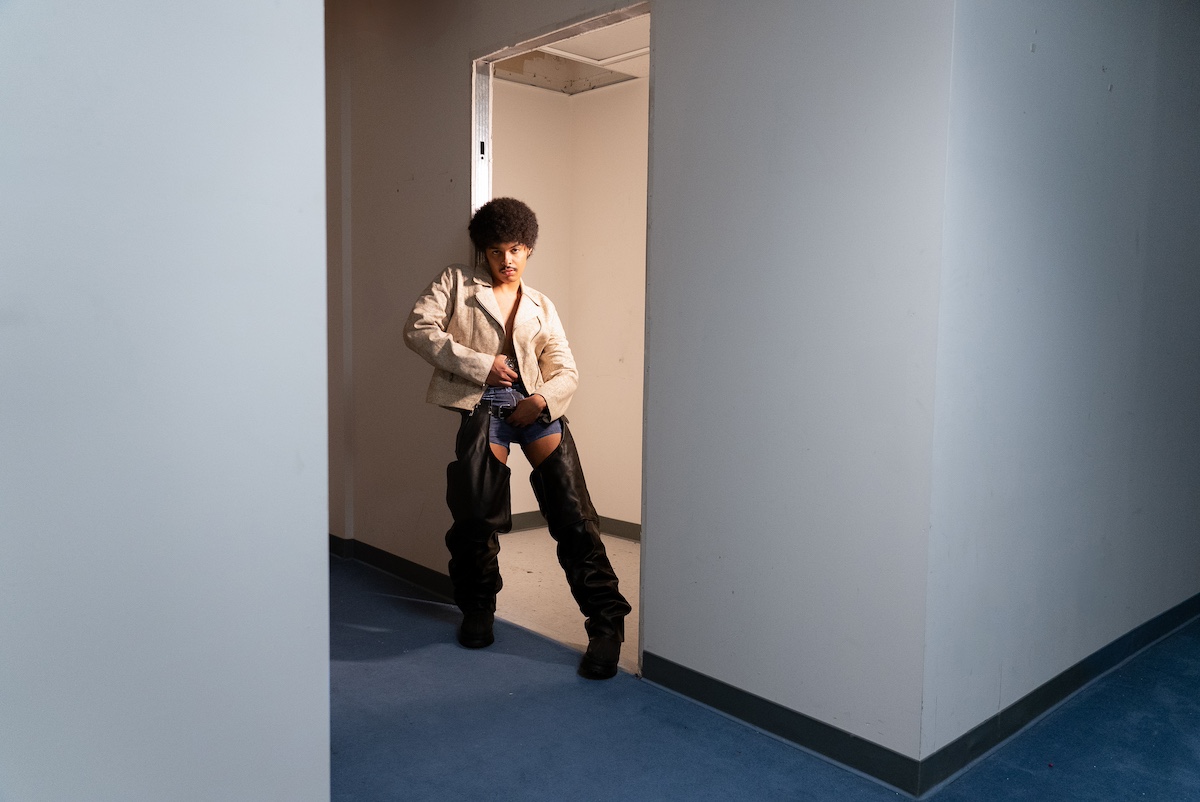
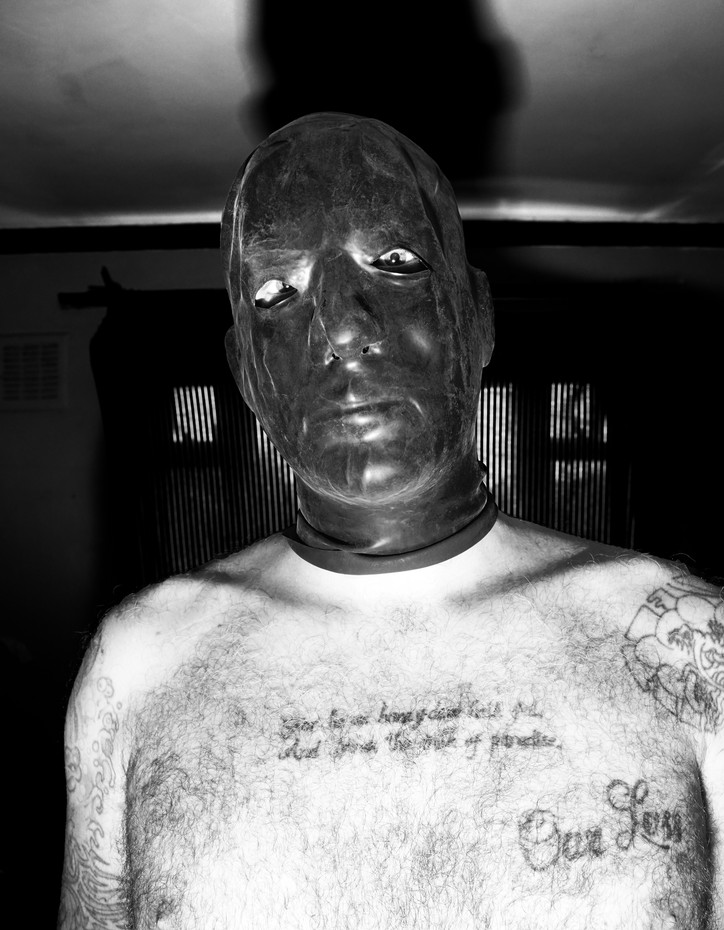
BBC Radio 6’s Mary Anne Hobbs called Religious Equipment “void core.” It’s abrasive and all-consuming, disarming you and forcing your gaze inward. That’s the beauty of noise music, Culver insists. “I just wanted to make a record that has no meaning,” he says. And in meaning nothing, it can mean everything. It’s not supposed to be familiar. You don’t even have to like it. It’s meant to provoke, to make you think in a way you haven’t yet.
Maybe listen to the record before you read this or do your research on Culver. You can enjoy it or despise it before you understand his history and his context. Then do your reading and try again. See if it changes form. It’s okay to love art for reasons the artist never intended. And it’s okay to hate art before you know the artist. Anyone who says otherwise is being pretentious and probably regurgitating a review from an equally pretentious critic. Culver values your honest reaction above all else. DM him that the record made you take a pair of scissors to your headphones because you couldn’t bear another second of it, or that it inspired you to paint a tree. He’ll probably post a screenshot of your message for an Instagram discussion forum about the meaning of art today.
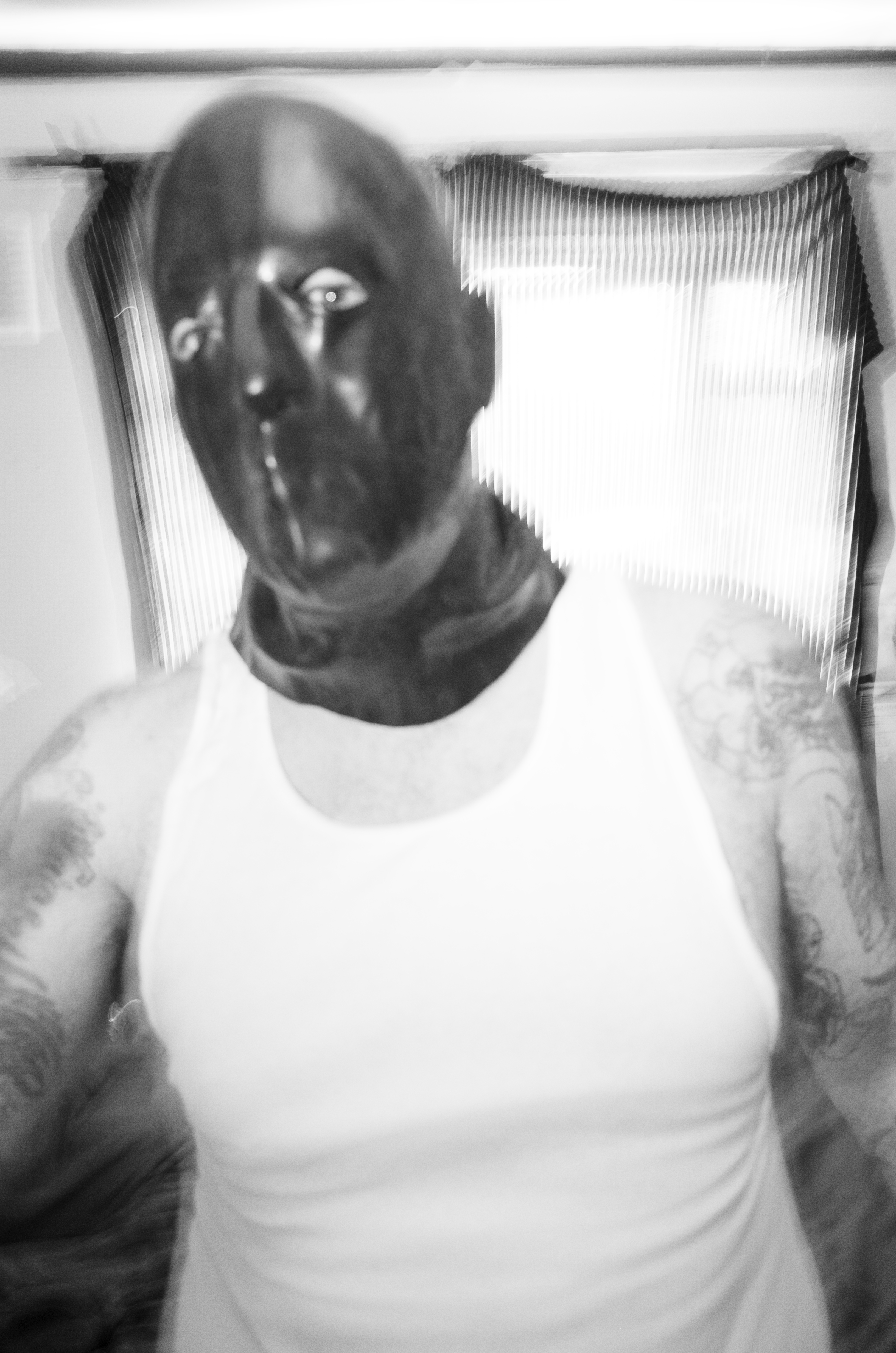
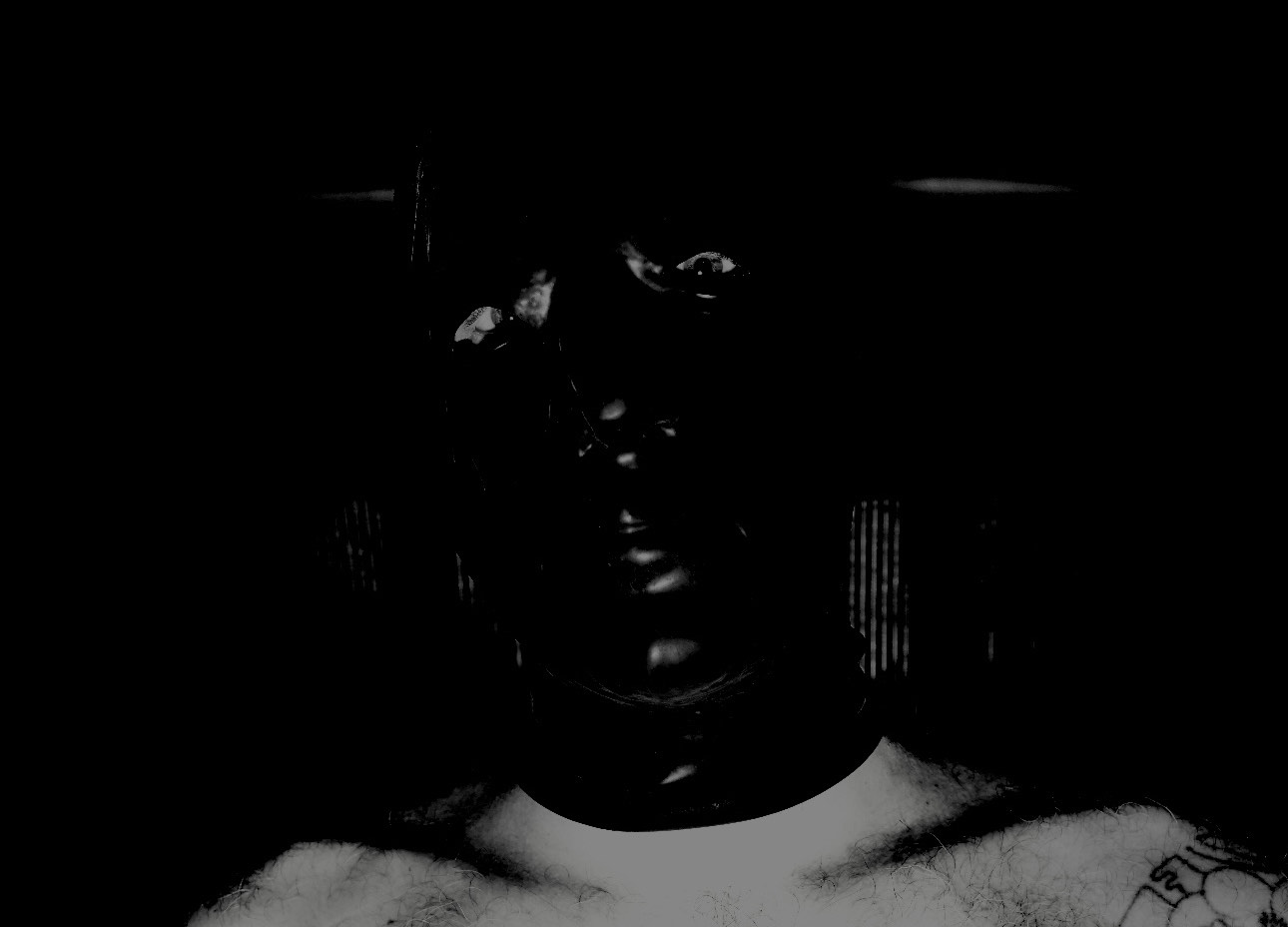
Megan Hullander — Last we spoke, you said you’d maybe adopt an alias once your music got abstract enough. What brought it to that point?
Richie Culver — I think it was more for admin in my head, for keeping everything—the little details that no one really gives a shit about—separate. But of course, as the creative, those [details] are life or death.
And I can’t make noise and techno under my government name. It was time to unleash the Quiet Husband. I’ve been sat on the name for ages and it fit perfectly for this. But I’m not going to do any more aliases. I think this is it.
So what does the name mean?
Quiet Husband is based on my best friend’s stepdad when I was maybe eight or nine. It was the way he would look at you—I’d catch glances and it’d freak me out. And, of course, it bleeds into all kinds of people. It’s that figure you don’t fully trust.
That feels connected to the text that accompanies the record—which references a lost man and loneliness and melancholy. It all points to the fraught nature of masculinity now, what it’s “supposed to” be. I imagine, especially as a father, that’s something you are grappling with a lot.
I swim in those worlds constantly in recovery, and being a dad to two boys and a girl. I’ll just speak about the boys in this particular sense. There’s a lot of pressure to raise them into the world. It’s a really fine line to walk. There are things that I relate to in them and that I’m trying to harness and push and not push too much and rein back in. There’s a whole PhD topic within the name Quiet Husband, probably.
Do art and academia go hand in hand for you?
I’m in my 40s now. As an artist, I’m continuously trying to educate myself and push my work in different directions. I’m making a trap record next, for instance, pushing the spoken word into a lyrical flow kind of thing. But I’m at a stage now where I need to be teaching as well—not necessarily in a school or anything like that, but I’m aware of people looking at me. I’ve been using social media as a way of that recently, dropping little insecurities and struggles—struggles that every artist has, but not everybody wants to talk about publicly.
It feels like every exhibition is going to be my last, every record is going to be my last. So I’m not thinking, How am I going to continue to do this? There’s so much insecurity in this lifestyle that we choose as artists and creatives and writers and anything under the umbrella of art.
How do you let something go with that feeling that it might be the last thing that you put into the world? I’d imagine that feeling would have the opposite effect on most.
I realize that I am prolific and that a lot of the things that I do could just stand as one thing in a year. But it’s just my process. I don’t know what I’m working towards. I don’t know if this is all going to culminate into something—if the best is gone, if I’m declining.
I’m [working in] the music world and the visual world, and one overtakes the other sometimes. Music seems to be leading the way at the moment. But I’ve always seen the art world as five steps behind the music and sound world, so it feels normal that that would be the case. The Quiet Husband alias has managed to make the gap further apart, as in, I’ve got space now to do more and not look like I’m a workaholic.
The concept of substitution is super prevalent on the record. Listening to the album almost had that same effect: When it finishes, there’s this sort of void that you are left wanting to fill.
I was aiming to bridge noise in techno and make it one genre. The techno on the record is pretty industrial and almost undanceable, and the other parts are like segues, but quite intense ones. The text for the record, by Charles [Teyssou] and Pierre [-Alexandre Mateos]—two French curators—is an important part of it. It also kind of sits completely random within it all. I think, having just finished at the Royal College of Art and [being] in the art world, everything needs to have a concept and a “what it means,” and the “why did you do that?” I fall into that trap. It needs to be there, I guess. Even when my kids are drawing a picture, I ask, “Why did you choose the color red?”
But for this, I just wanted to make a record that has no meaning. It’s a record about nothing, that challenges how you listen to it, why you are listening to it. The titles are all extremely important, of course, the blocking and substitute element, and a concept comes—quite a heavy one—but as I was making it, I felt relatively free and almost like I was on the brink of a new genre, which, incidentally, Mary Anne Hobbs called void core. We wanted it to be an unfriendly record. Not in a pretentious sense, but I don’t want it to go around the parameters of what is acceptable for a dance floor. I can’t imagine anyone putting it in their set.
Maybe it’s more approachable because there’s no “right way” to go about it.
I think that’s always my goal, even with the spoken word stuff. What I love about the noise world is there’s kind of nowhere to go from there. As much as I love music and all its genres, as soon as you start hitting the noise territory, you’re kind of at the summit. I’ve been obsessed with how can I educate myself into listening to noise and accepting it as a texture and not necessarily a melody or anything that has any rhythmic value. I don’t think there’s a musical expression that is more academic than noise. It’s like an abstract painting. It’s people thinking not even outside the box, they’re thinking outside the planet.
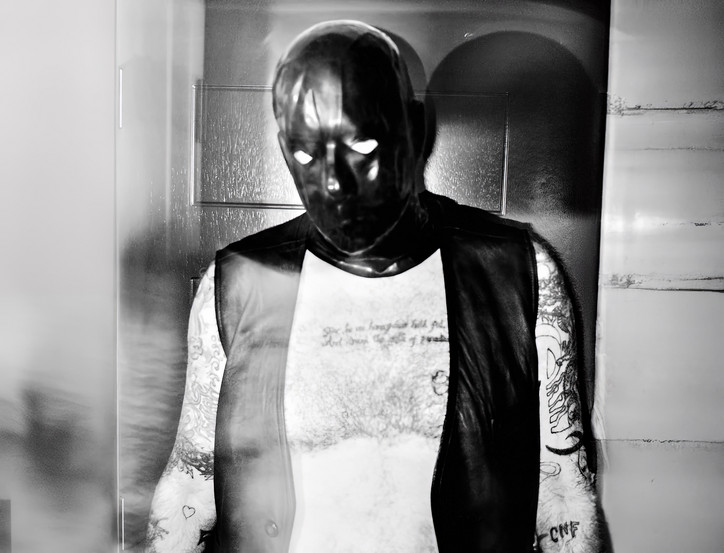
Your mom was featured on it—what does she think of it?
It just goes as far as, “Are you still doing the music stuff?” or “Are you still doing the art stuff?” I say yes, and that’s good enough. She’s approaching her 80s now so we don’t go into much about it. She’s the sort of woman who would give you a birthday card and cry herself because of the writing on the front of it—because of why she chose it on your 35th birthday, because of the man you’ve become. So I think, I just said to her, “What’s the most important thing to you?” and then pressed record. And she was like, “Family, being healthy is the main thing in your life.” And then I just took it on loop, and pitched it down. I’ve kind of stuck with it in the same way that noise is just kind of like one tone or just absolute hecticness.
Where did you look for inspiration in making it?
Because I’m a painter, I see the parallels hugely between conceptual, minimalist painting and noise. Even just in the band names—Climax Denial, Cheapest Coffin, Straight Panic—it’s always really intrigued me. You know when something just touches your own creative pulse or makes something inside you smile? I’ve always seen it very much like painting when I’m in the studio, in a flow with the music. There’s nothing better than being lost in gestures. When you’re making noise, you’re questioning your own sanity while you’re doing it—doing something that no one’s gonna want to listen to or be able to sit through. And that links to horror films and as a kid watching Freddy Krueger or Jason Voorhees or Michael Myers. Like, Why do I want to keep watching this? I’m not going to want to go to bed. But still, I was just obsessed with seeing it through. It’s the same with the noise thing. I’m questioning why I’m doing this, and there isn’t an answer. I love that.
Music is maybe the only thing where I would feel any hesitancy telling an artist that their work made me uncomfortable. Your’s did and it’s intentionally unsettling, but it still feels awkward to say it—even though it wouldn’t with a painter or a filmmaker.
If I sit and listen to a Climax Denial record, it brings up emotions and parts of my inner dialogues that I wouldn’t have ever imagined being able to go—really positive places and really challenging places. I’m listening to the roar of white noise or screeching or metal clanking, and it’s visual. I owe so much to the noise world in my overall output. It’s almost like a secret that I don’t want to give people. It’s like, Trust me, go and listen to this record. Just sit down in a dark room with your headphones on and listen to it. You transcend.
And don’t get me wrong—I love as much as the next person to put Radio 1 on and listen to Central Cee and Adele. I definitely have space for that. I’m not a purist in any way. Actually, I’ve come to terms with the fact that I’ve never been a purist in anything. One of the main things I’ve learned through my creative journey is to watch other people, especially young artists, and embrace that. If you don’t understand it, try to understand it. I love not understanding things. Like going into a museum and instantly dismissing stuff because it’s figurative, or because it’s too colorful and, all of a sudden, you realize what seems a basic painting of a sunset was done by some outsider artist.
That’s interesting because, at the beginning of our conversation, you said you wanted people to experience the record without context.
That was a big conversation at the well, for me at the Royal College: Can a painting just be a painting? Without it, it just becomes about the artist’s skill or lack of skill. I guess you do need more information.
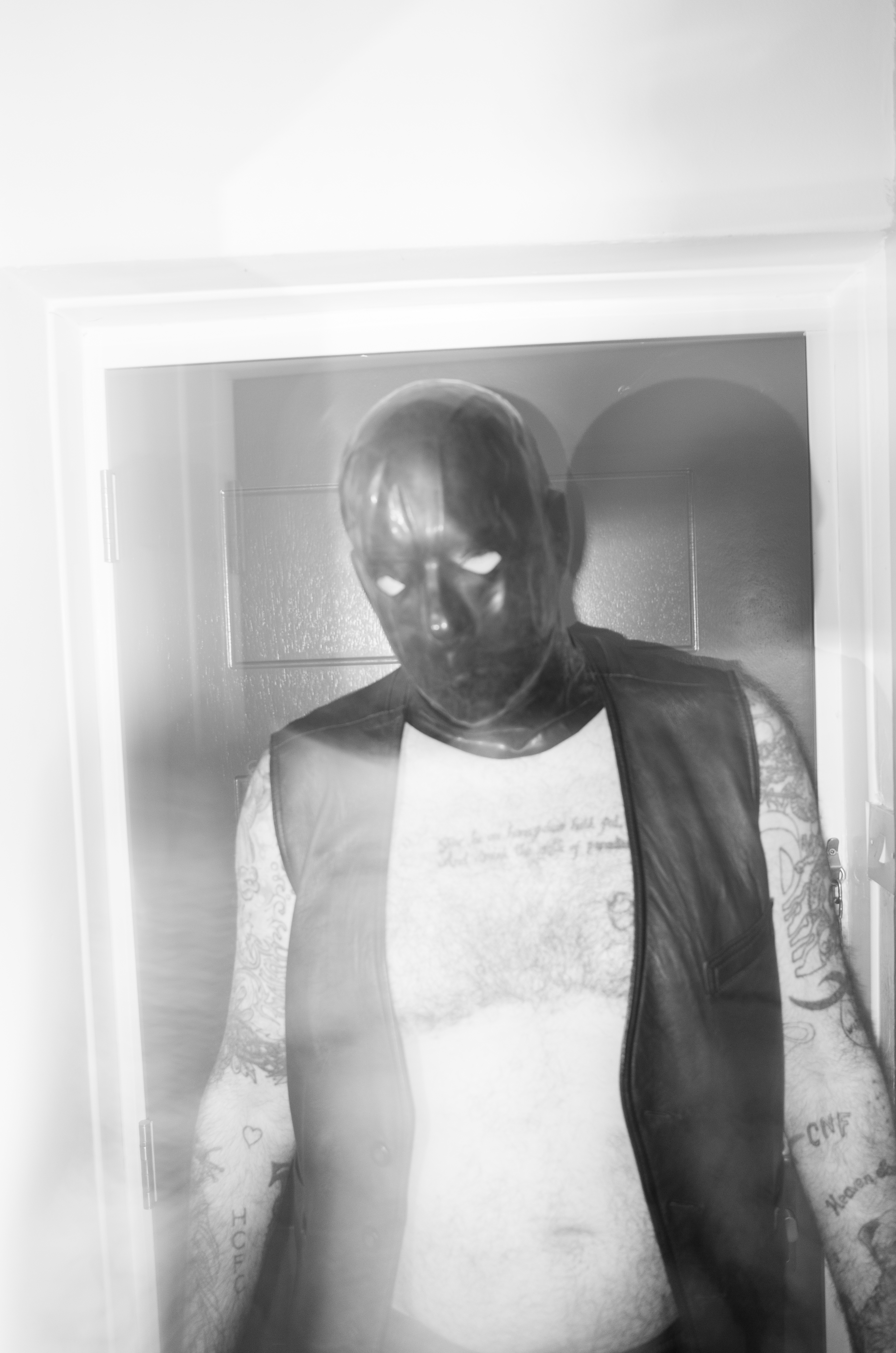
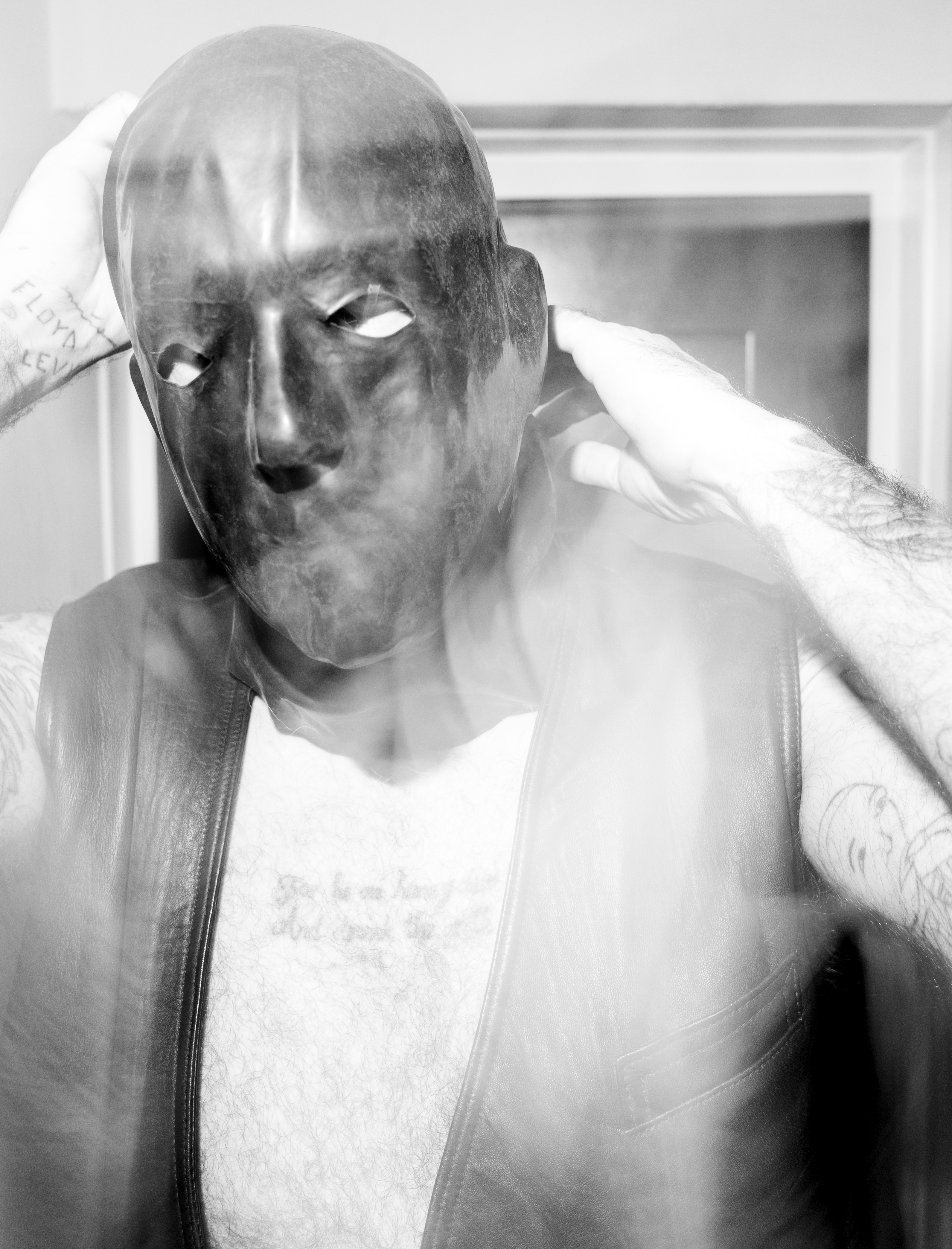
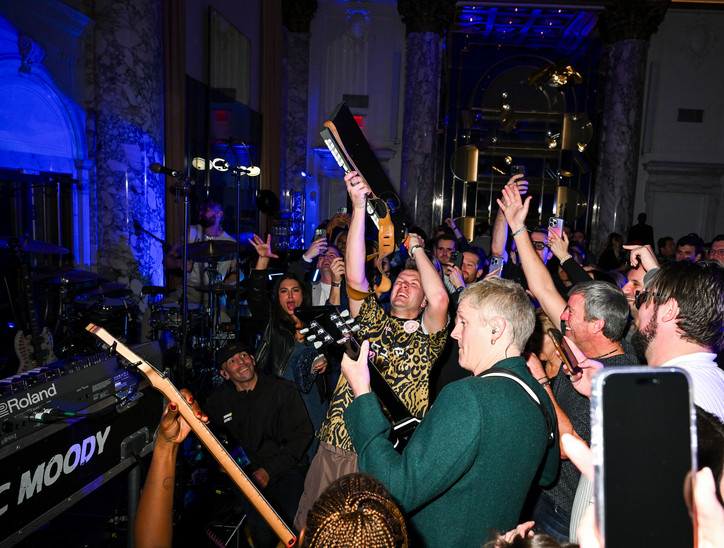
The atmosphere was electric and intimate, with guests mingling in the vibrant space while sipping on crafted cocktails from the hotel’s bar. The setting, with its blend of glamour and edge, complemented Fenn’s evocative melodies. This event not only highlighted W Hollywood’s deep connection to the entertainment world but also the brand’s ability to create cultural moments.
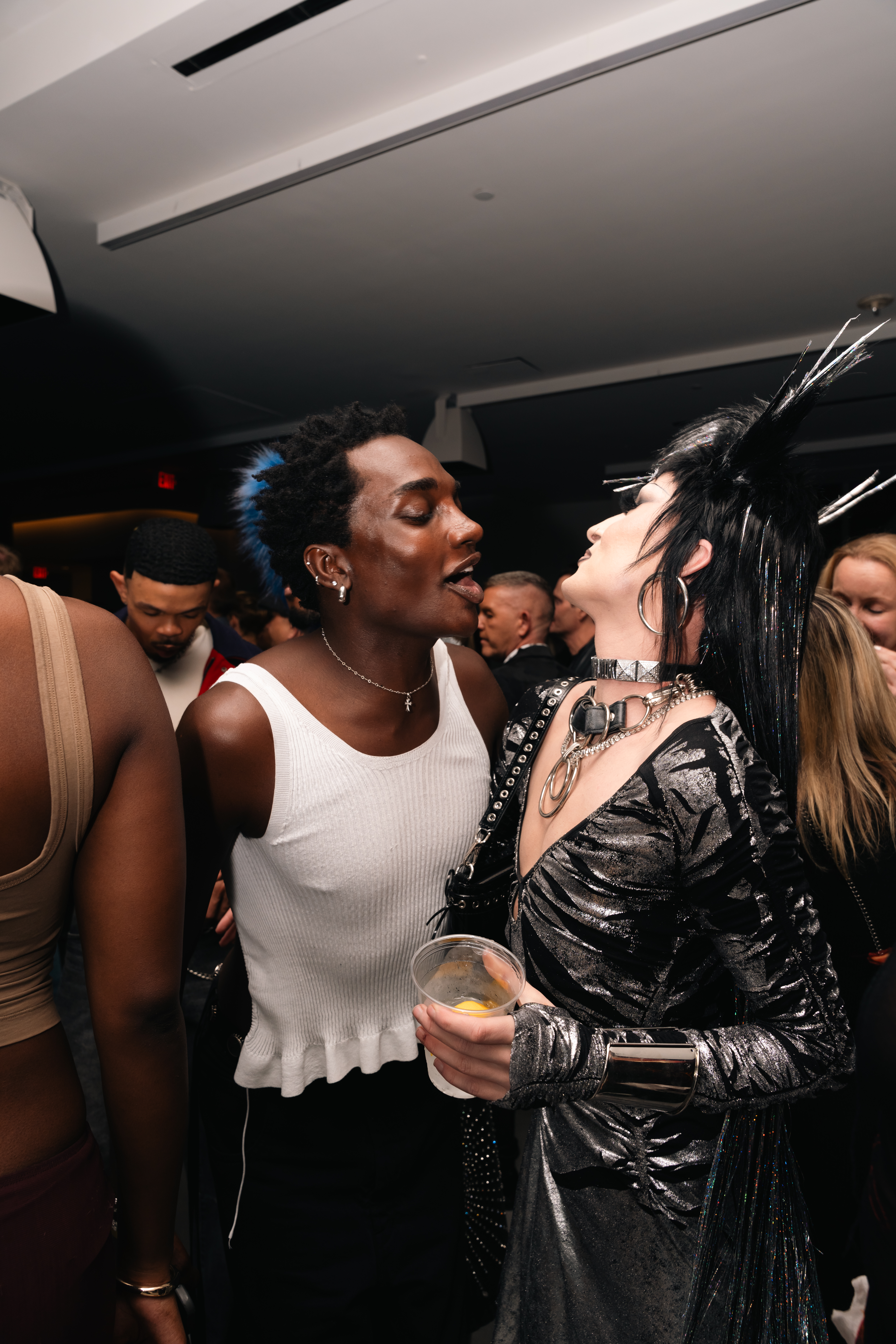
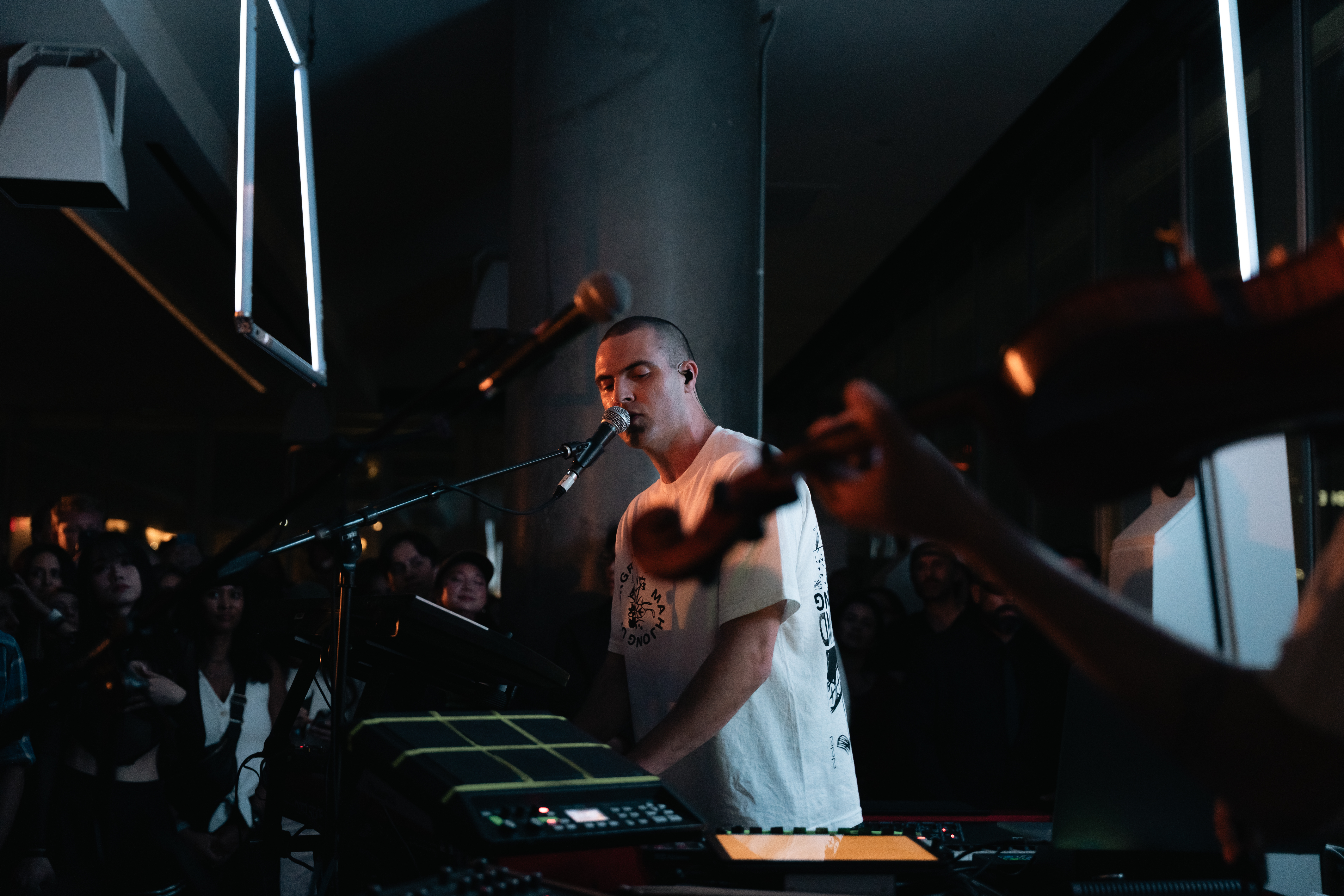
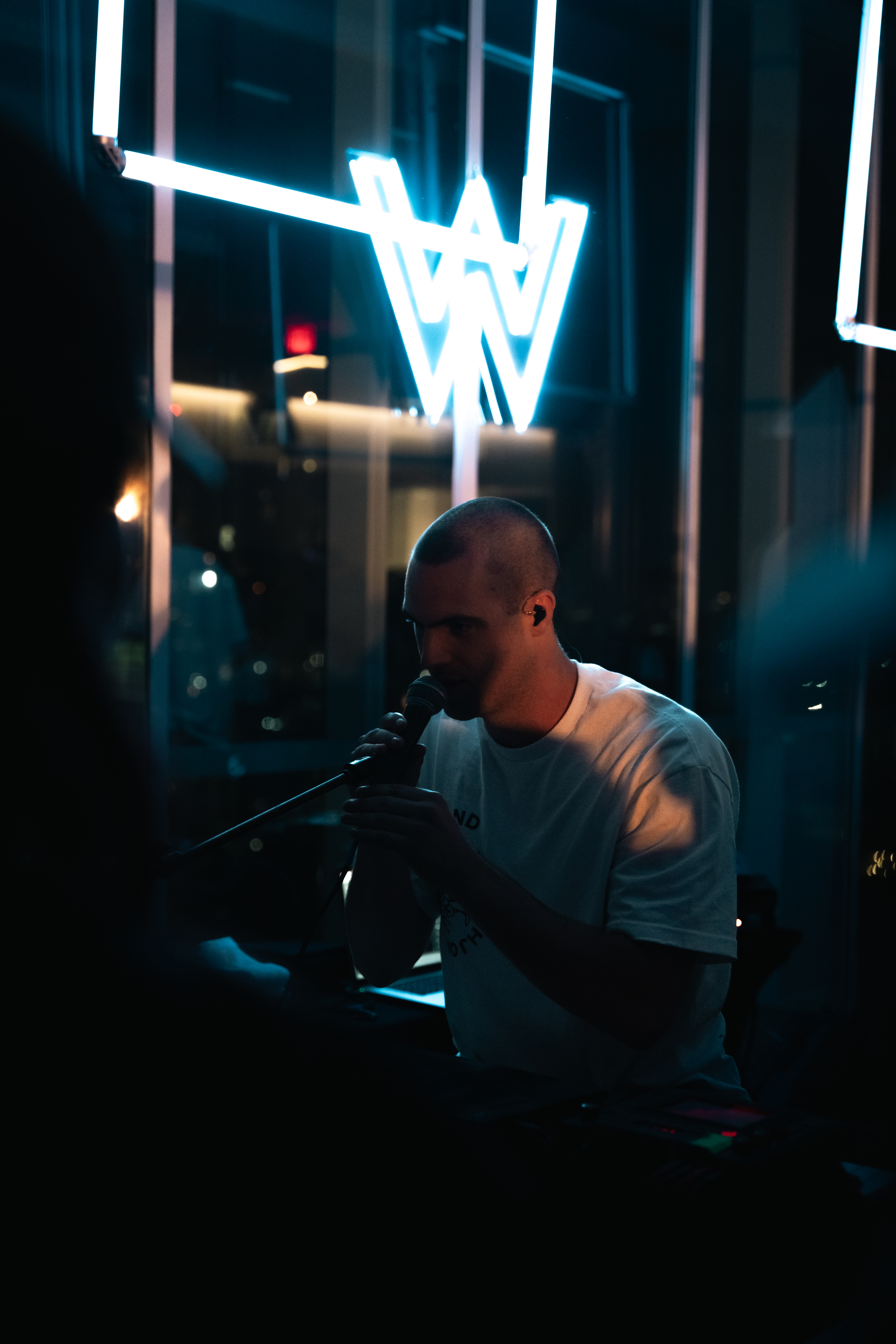
At W Austin, Arc De Soleil delivered a high-energy performance that almost felt psychedelic, capturing the essence of the city’s reputation as the Live Music Capital of the U.S. The artist’s dynamic energy resonated with Austin’s eclectic spirit, making the event a natural fit for the city’s vibrant music scene.
The Living Room at W Austin buzzed with excitement as the crowd soaked in the music, which reflected the city’s reputation for fostering connection through music. The warm, inviting atmosphere made it easy for guests to relax and immerse themselves in the performance, while the setting—a modern, stylish space—added to the overall experience.
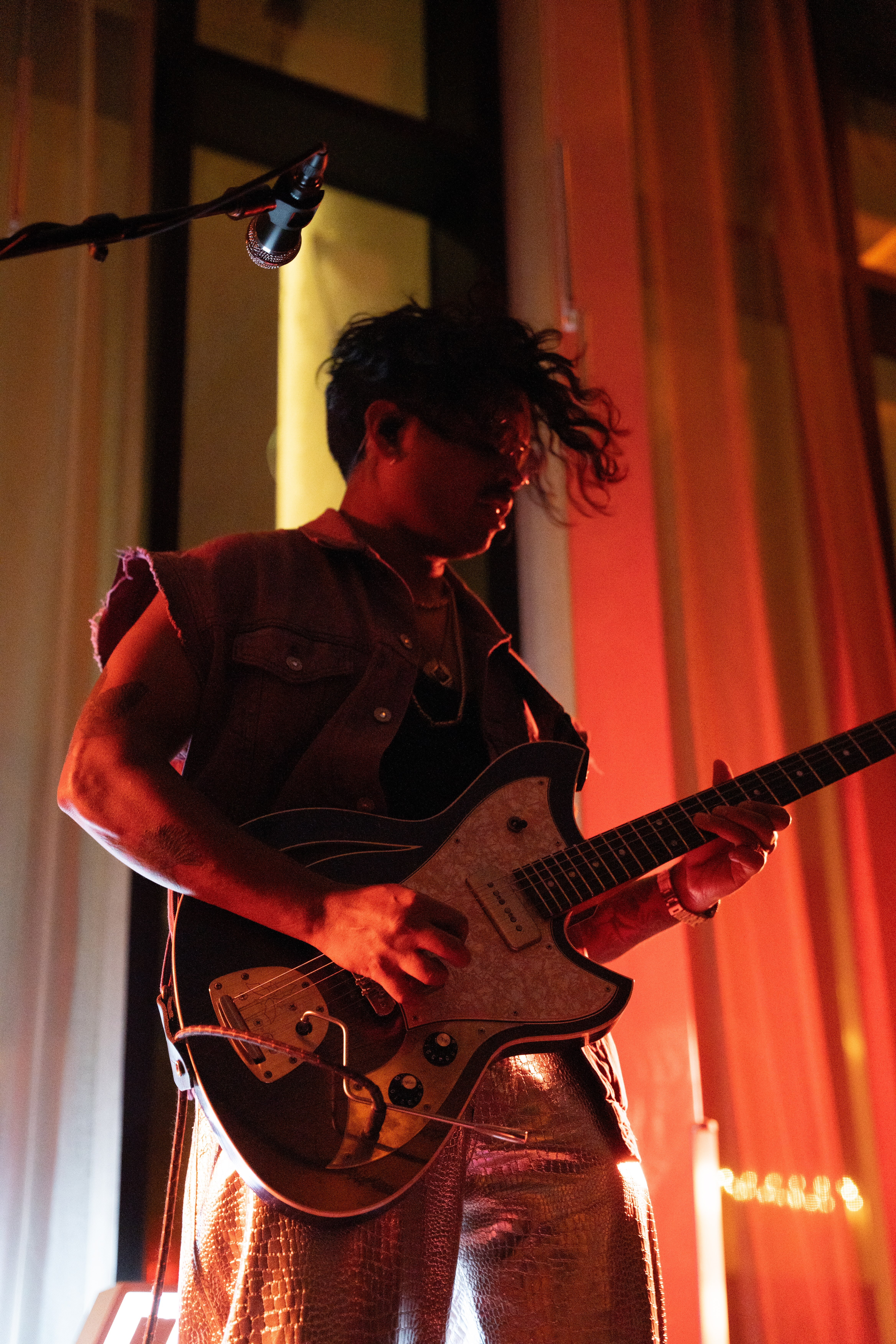
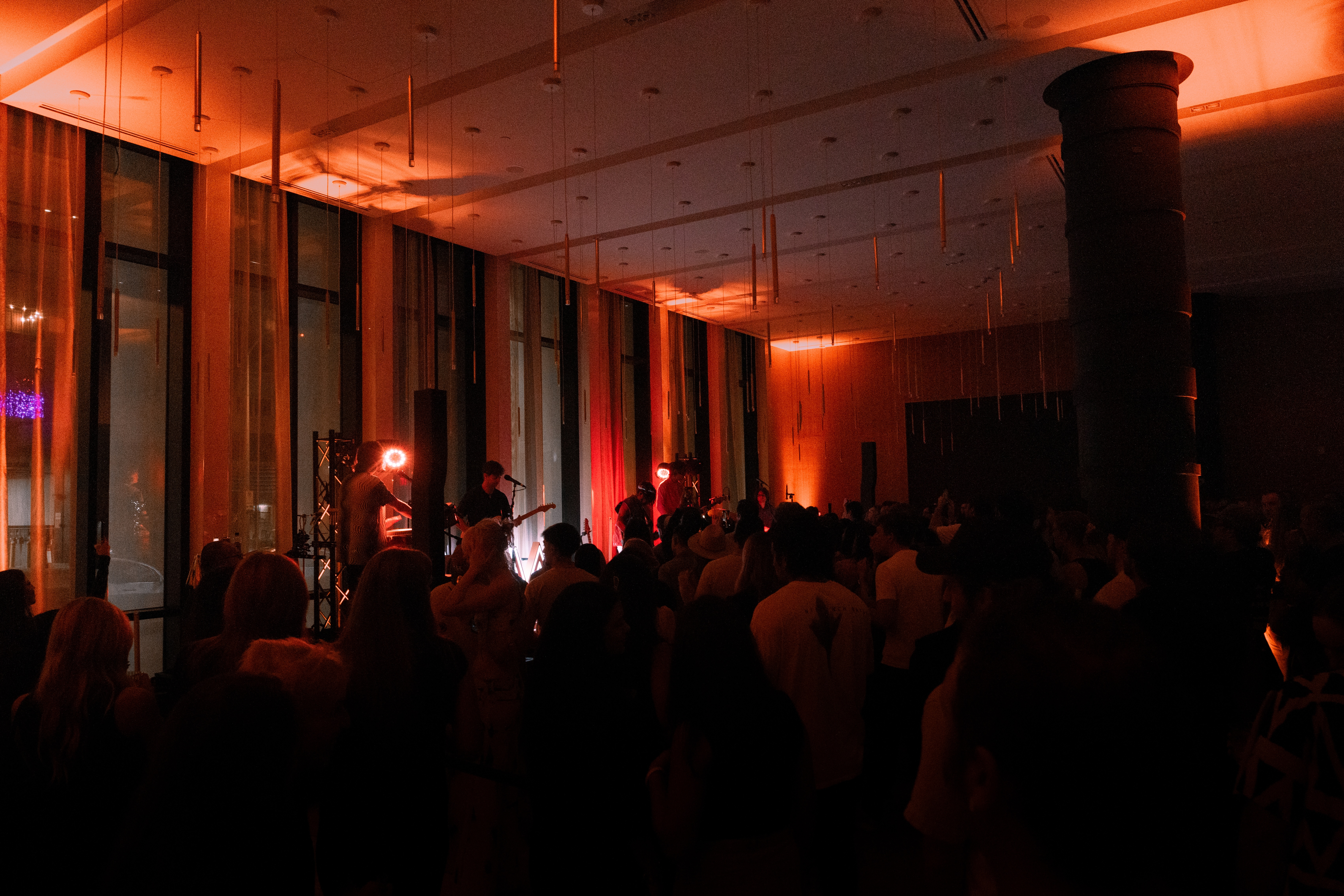
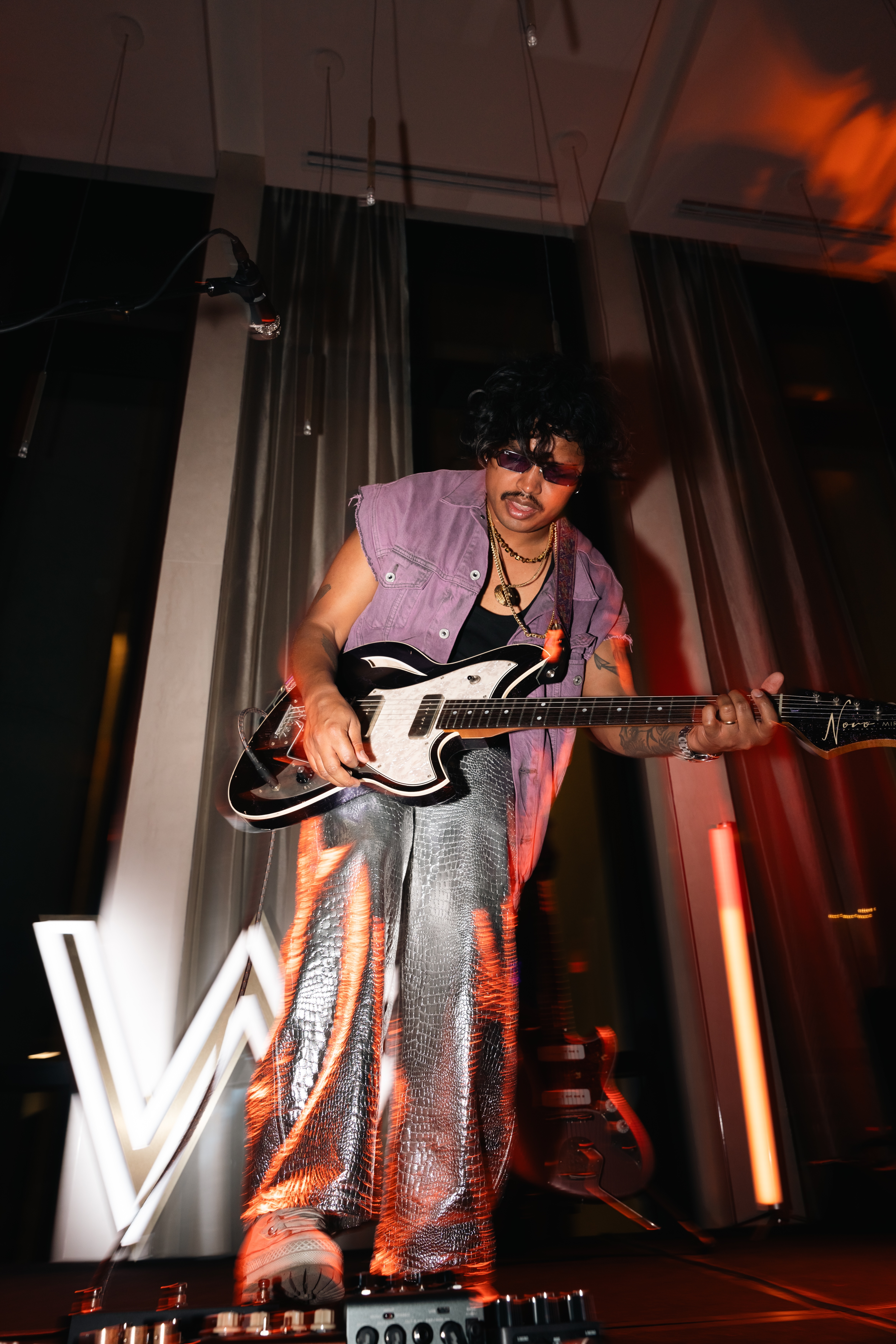
The final stop of this W PRESENTS series was at the transformed W New York – Union Square, where Franc Moody brought their funky, energetic sound to the stage. Their music lit up the Living Room, turning it into a dance floor that captured the essence of New York City’s vibrancy.
The audience was a mix of young music fans and professionals, some dressed in sharp suits, all united by their love for great music. The stylish and lively atmosphere of the hotel made it the perfect setting for a night filled with energy and connection. Franc Moody’s performance celebrated both the spirit of New York and W Hotels’ deep roots in the city.
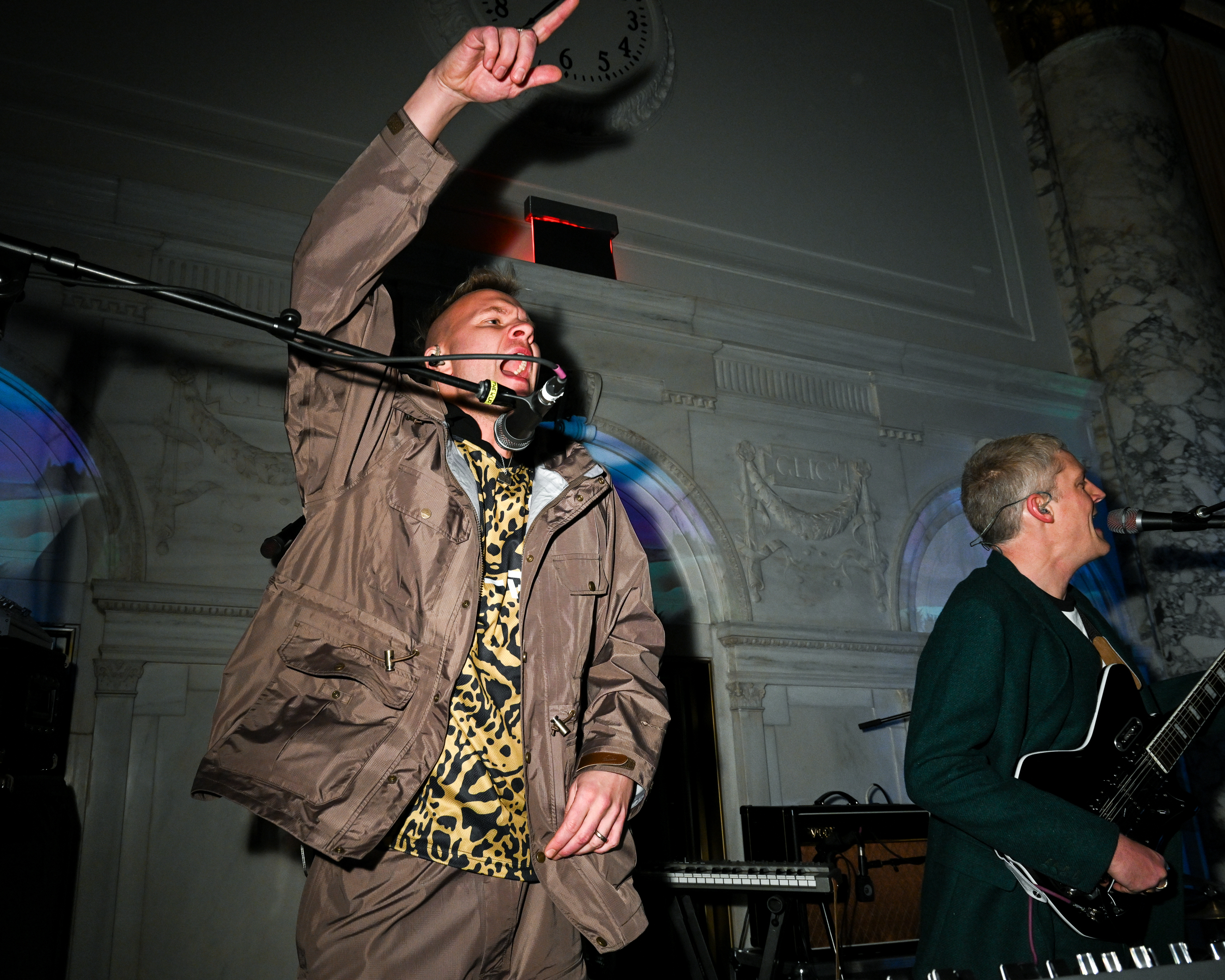
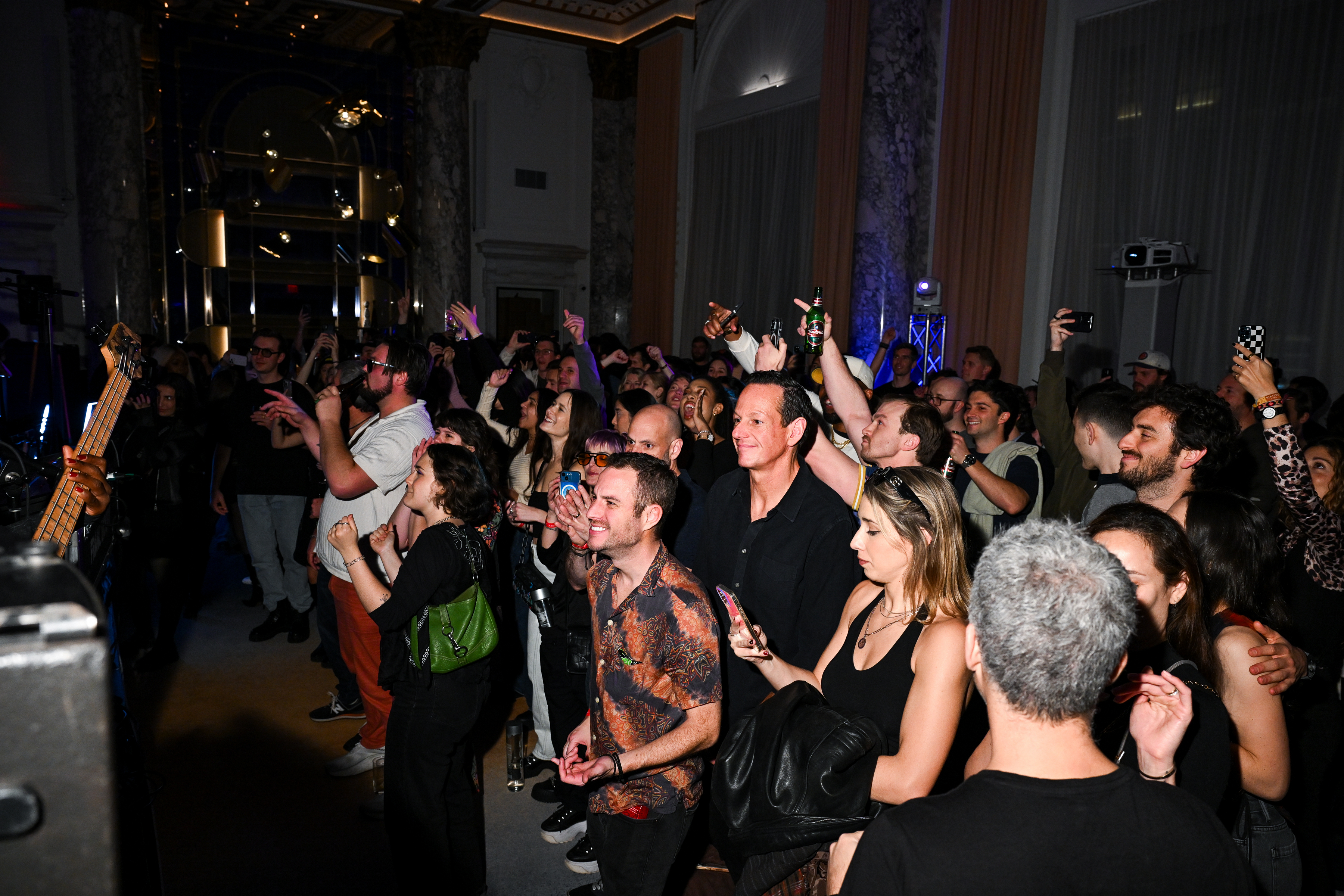
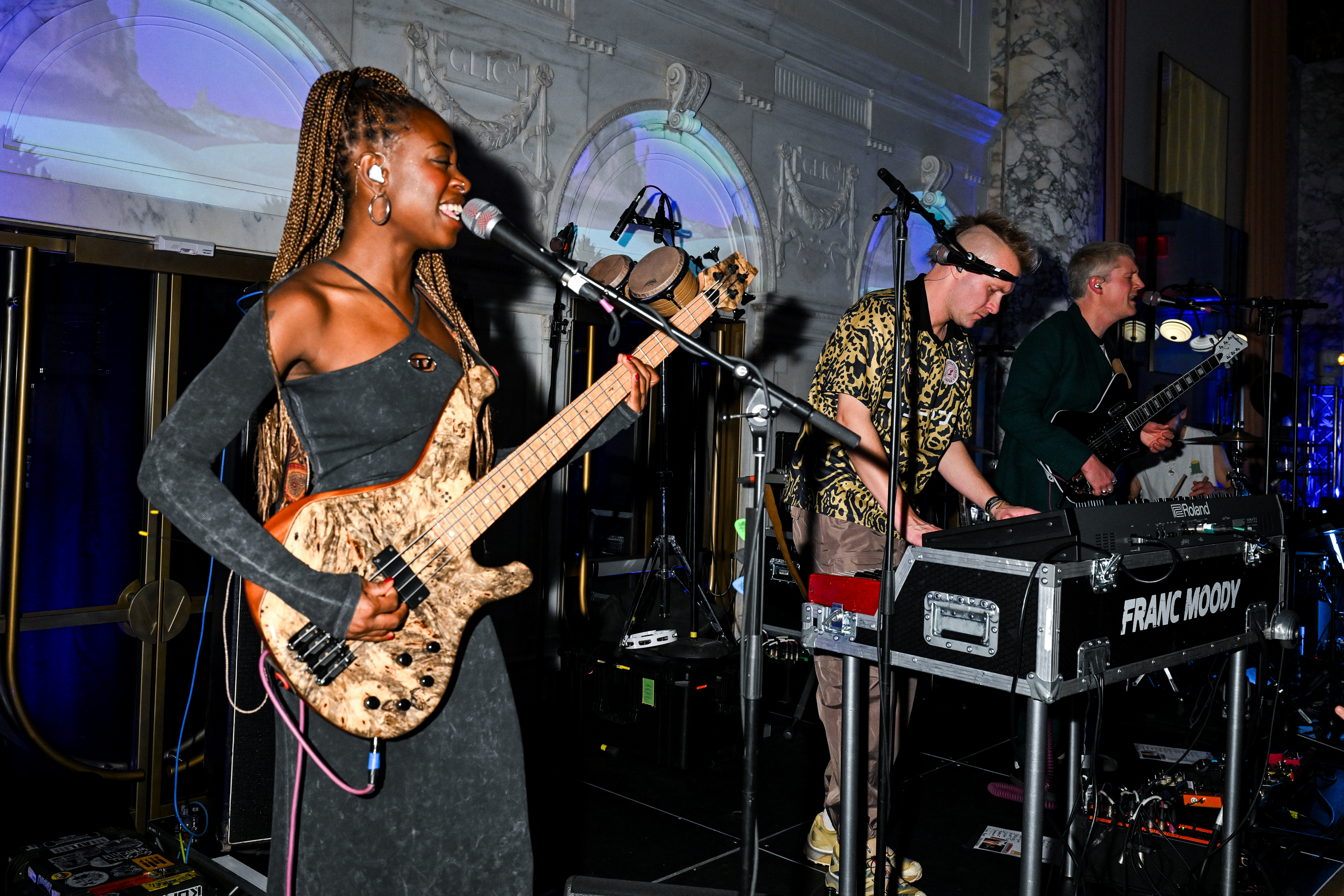
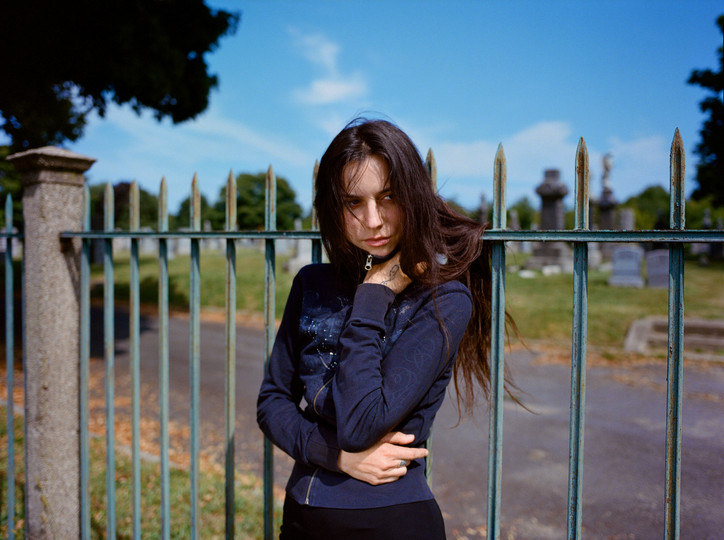
She had just returned from the Kiko Kostadinov show at Paris Fashion Week. “It was beautiful,” she said with a soft smile, an enticing gentleness that mirrors her artistry, honed from years studying classical music, hosting radio shows in Paris, and being heavily involved in the musicality and lyricism of her work. Just days earlier, Oklou had hosted her own intimate shows in an inconspicuous Chinatown space in New York City. Guests ascended a slightly-too-small elevator—its deliberate slowness creating a hint of suspense—and arrived at a room bathed in soft pink and purple light. Floor cushions scattered through the space encouraged an intimate listening experience as Oklouunveiled the songs she’d been crafting over the past two years, offering a deeply personal and immersive performance.
What began as a planned thirty-minute conversation about her upcoming album stretched into an hour-long exploration of her work: processing life through song, the pursuit of artistic integrity, the magic of perfect loops, and her ongoing search for simplicity in both sound and expression.
“So, I’m going to try my best to talk about this,” she began, leaning in slightly. “When I talk about the songs and the album, there’s just so many feelings and thoughts I’ve been trying to put into words. It’s been one of the biggest challenges for me.”
She paused, then laughed lightly. “I make songs, and then when it comes to talking about them, I often get lost along the way. So, pardon me if that happens.”
The honesty of her admission added to her charm. “It’s an effort for me,” she explained. “Even in French, it’s hard for me to make sense of everything. So in English… my brain is like, agh, you know?”
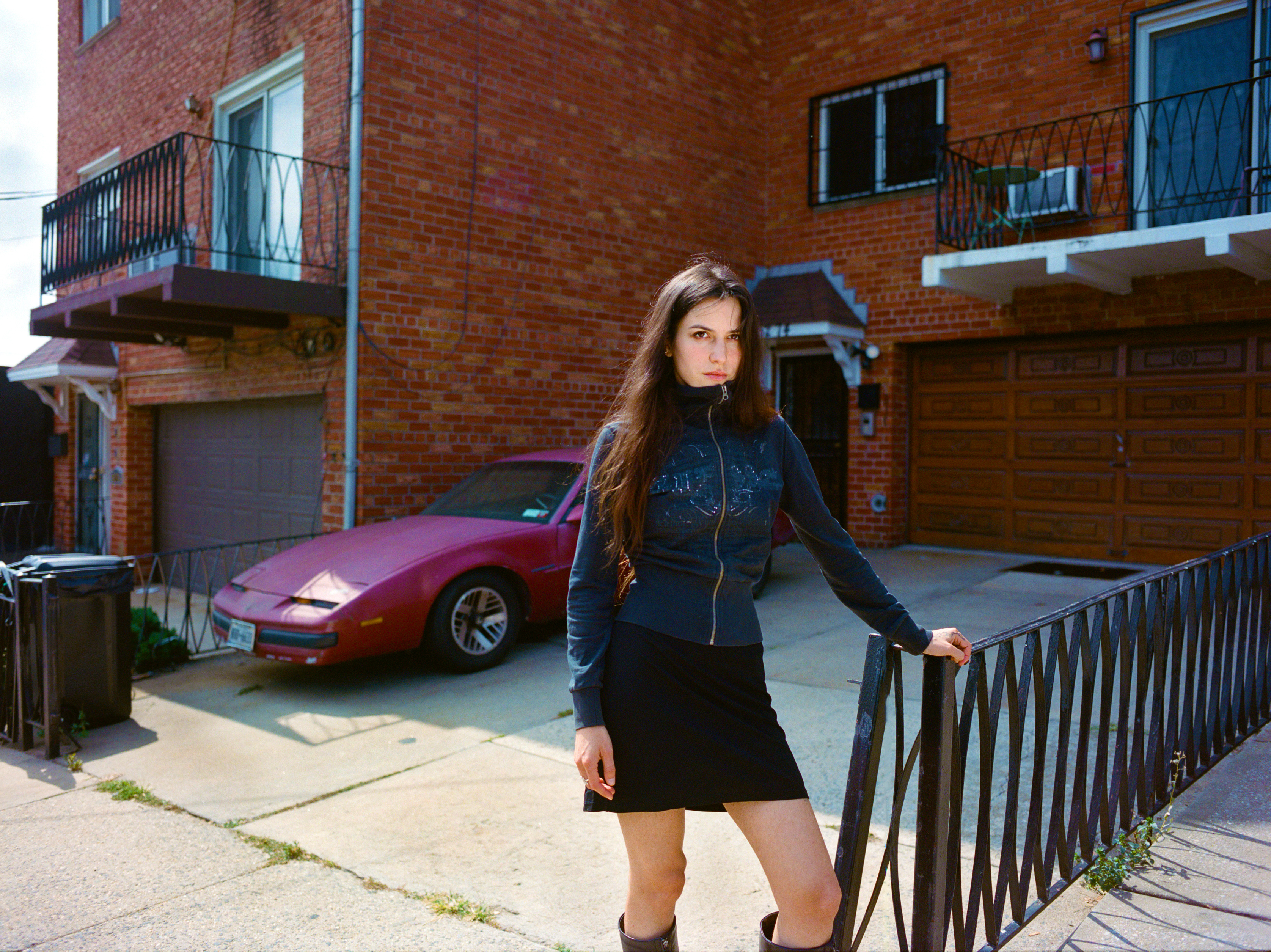
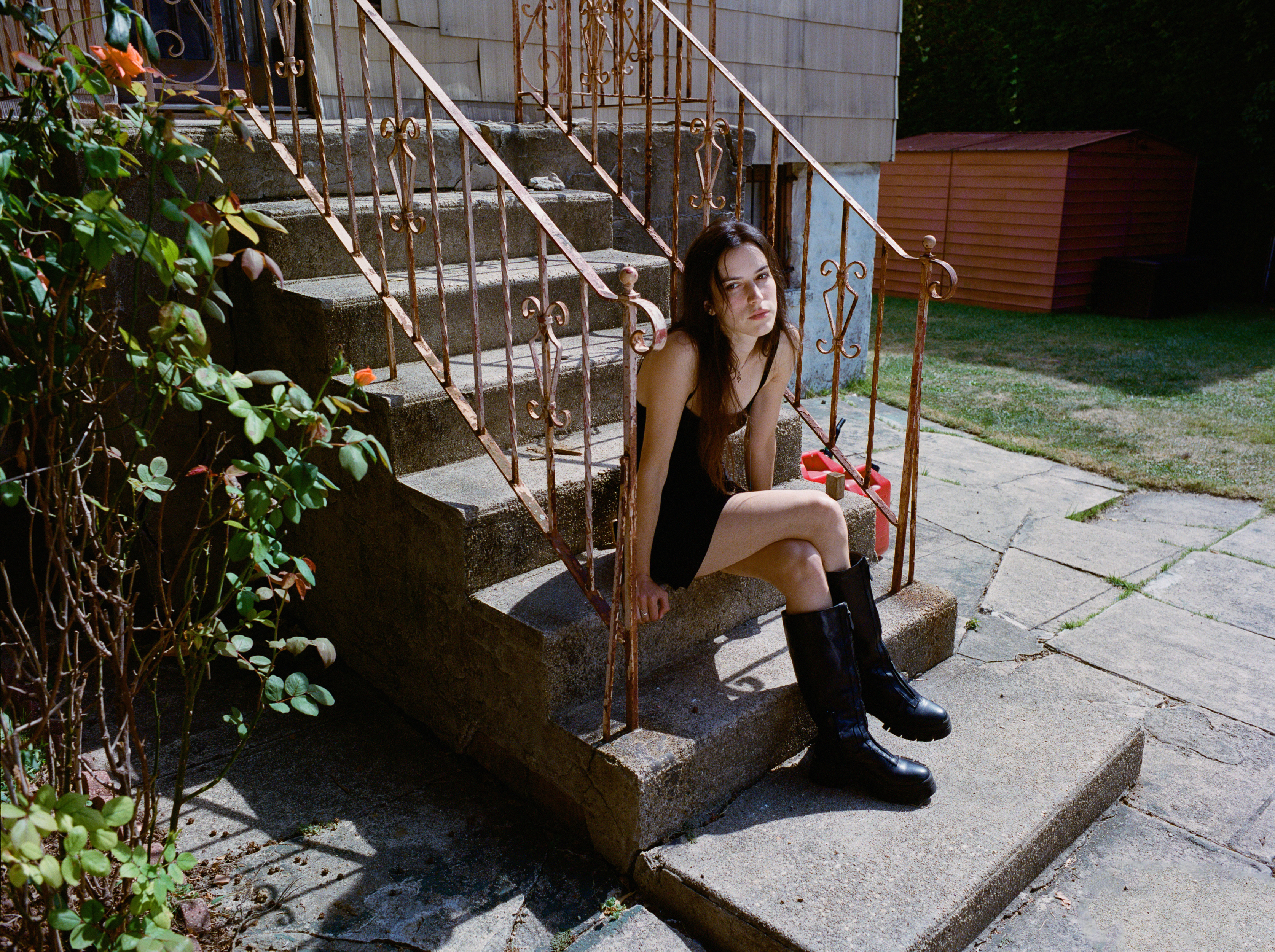
Your single “friends and family” has been out for two weeks now! How does it feel “to be back”, as they call it and have released this song into the world after a period of away?
Yeah, it feels great. I've been waiting for that for a couple of months now, if not years. It's really nice for many reasons. I'm glad to get back in touch with my audience. I am happy that I finally can, after all these months of writing, I can release a bit of the creative pressure, even though it's still there because now we are working on the imagery and all the visuals. It's also a lot of work, but my main medium, which is music, it's all done. So it feels a little bit like a holiday with a bit of a paradox because I'm way busier than I've been over the last two years, but mentally, because I don't have that pressure over the music and all the creative stress, the business is actually comfortable.
There’s a line in the track, if I heard correctly, about lying in bed all day. So I was curious, what's your perfect day, lying in bed?
Love that question. I would take the time to actually watch movies during daytime because it's not something I do anymore. It's such a shame because when you watch movies at night, you fall asleep and movies deserve the actual focus and attention that you have throughout the morning or the afternoon. So, I really want to normalize watching movies during the daytime; it’d be great for all of us. Anyway, I would do that…I would probably sleep, of course. I would probably read, take the time to read and listen to podcasts. You know, nothing crazy. Eat some blueberries.
Thinking back to that feeling of release, you posted last week on your Instagram account about how “friends and family” has to do with performance, and I also remember also at the New York show, you mentioned how you felt like you could just be human in that space– you didn't have to just put on a persona. Could maybe elaborate more on that? On your being able to be yourself versus having to put on a performance?
The other day, I sent the music video to my family on WhatsApp group chat, and they asked, well first, obviously, they're all French, and they don't understand a word of the song since it’s all in English. So they've asked, “What’s this about?” And that was when I actually put my finger on that performance thing. Basically, the song starts with me relating a memory I have of one of my teachers in my life from when I was very young. This teacher was always trying to push me to be more emotionally impressive with my classical music, so I began to see it as a challenge like “Oh, you think I'm callous and cold? Watch this, I'm going to put tears in everybody's eyes”.
So, I started performing to emotionally move people, but for the wrong reasons. Now, I'm trying to understand where in lies the performance that is my own. It's like a conversation with myself I guess where I'm trying to figure out what path I really want to pursue with only my own critique which is almost impossible, but I'm doing the questioning.
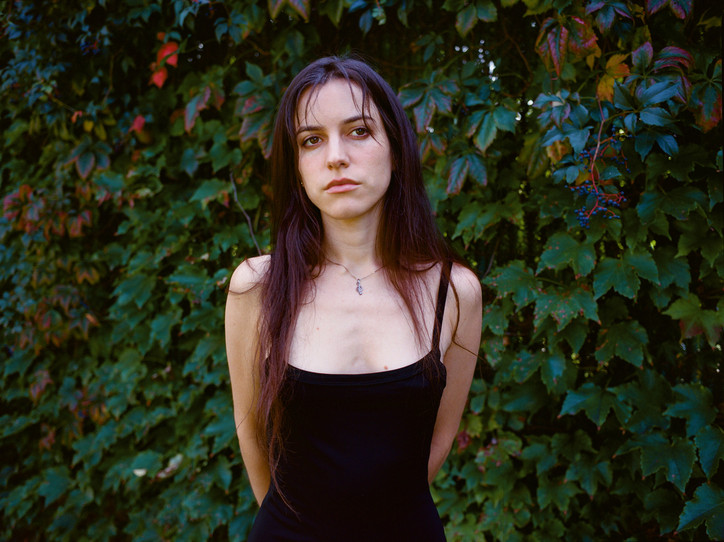
You shared via Instagram caption that you hadn’t posted anything on social media for a while because you felt like you weren't meeting the expectations of your job. What made you feel that way?
Well, to be fair, first of all, I think this caption was a bit of a joke because I don't really feel like I haven't met people's expectations in the sense that it's okay for me to take my time creatively.
I think I'm not there to fulfill anybody's expectations. It's art. There's no recipe, whatever. But also purely from a social media perspective, I’ve been restraining myself so that I could be active during the writing process. Which is fine because I’ve been on social media ever since I could. It's been more than 10 years, and it's always been a habit for me to post as I've always been very vocal on the Internet. And recently, I think for the first time, I've been a bit more distanced, also because I cannot… just like having that phone in my hands, was hurting my eyes more and more.
Sorry, there's a mosquito.
It's okay.
I also felt I felt like people didn't really care about the flowers in my garden I would post on my Instagram story. People would be like, “Girl, where's the music?” which didn’t make me mad at all. I understood. It’s all jokes. But that's why I wrote that caption, basically.
It seems like you have a healthy line of understanding why you do what you do creatively and looking at things through your lens without the perspectives or opinions of others blinding you. With that said, how do you measure your own success?
I think it's a very interesting question, but also really hard because there are so many layers to the feeling of success. There's the financial success, there is the numbers success, which is connected to financial, obviously. But when I say numbers, it's the actual numbers or streams or views or followers. And then the one that I might be a bit cliché, but it's really true in my In my recent life. But the success that I prefer is far from the numbers. It’s a much more intimate feeling that I've done what I was meant to do.
Like very personal.
Whether it's commercially a success or not, is so disconnected from my personal gauge. Of course, when both conditions are met, commercial success and my personal feeling of accomplishment, it's amazing. It's not It's not making me grow as an artist, not numbers wise, I'm not interested.
Mhm.
It's such a privilege to be able to say it because obviously, like everyone else, I need to make money to live. But also, I don't think I can do anything with my music just to pay my rent. I'm not ready to give up on my artistic integrity. And the older I grow, the more this feeling is confirmed in my head. The worst thing is don’t have full control, the decisions don’t resonate with your heart at all, and then it goes wrong. And then you're like, well, what did we learn? Nothing. We learned nothing from that.
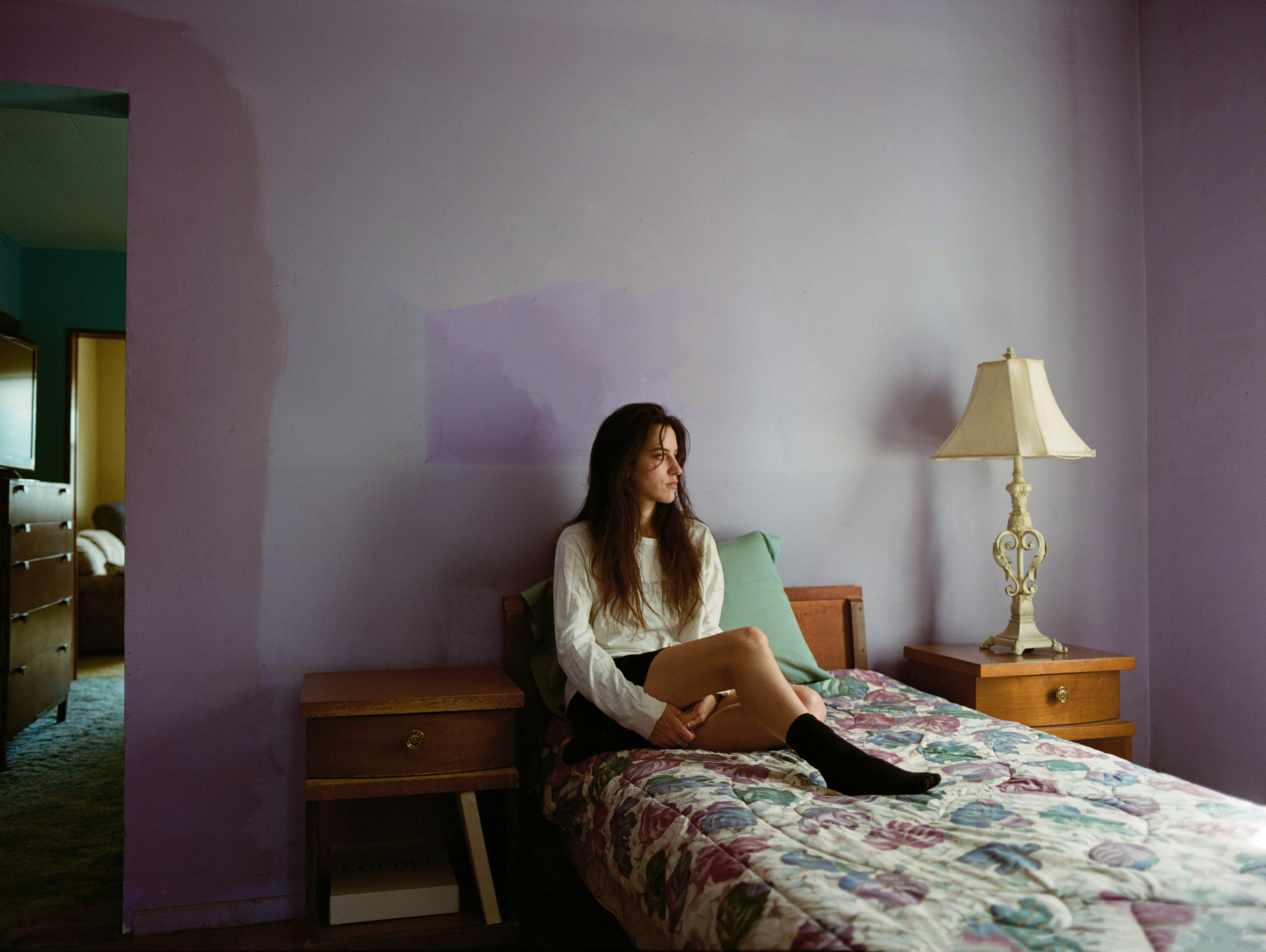
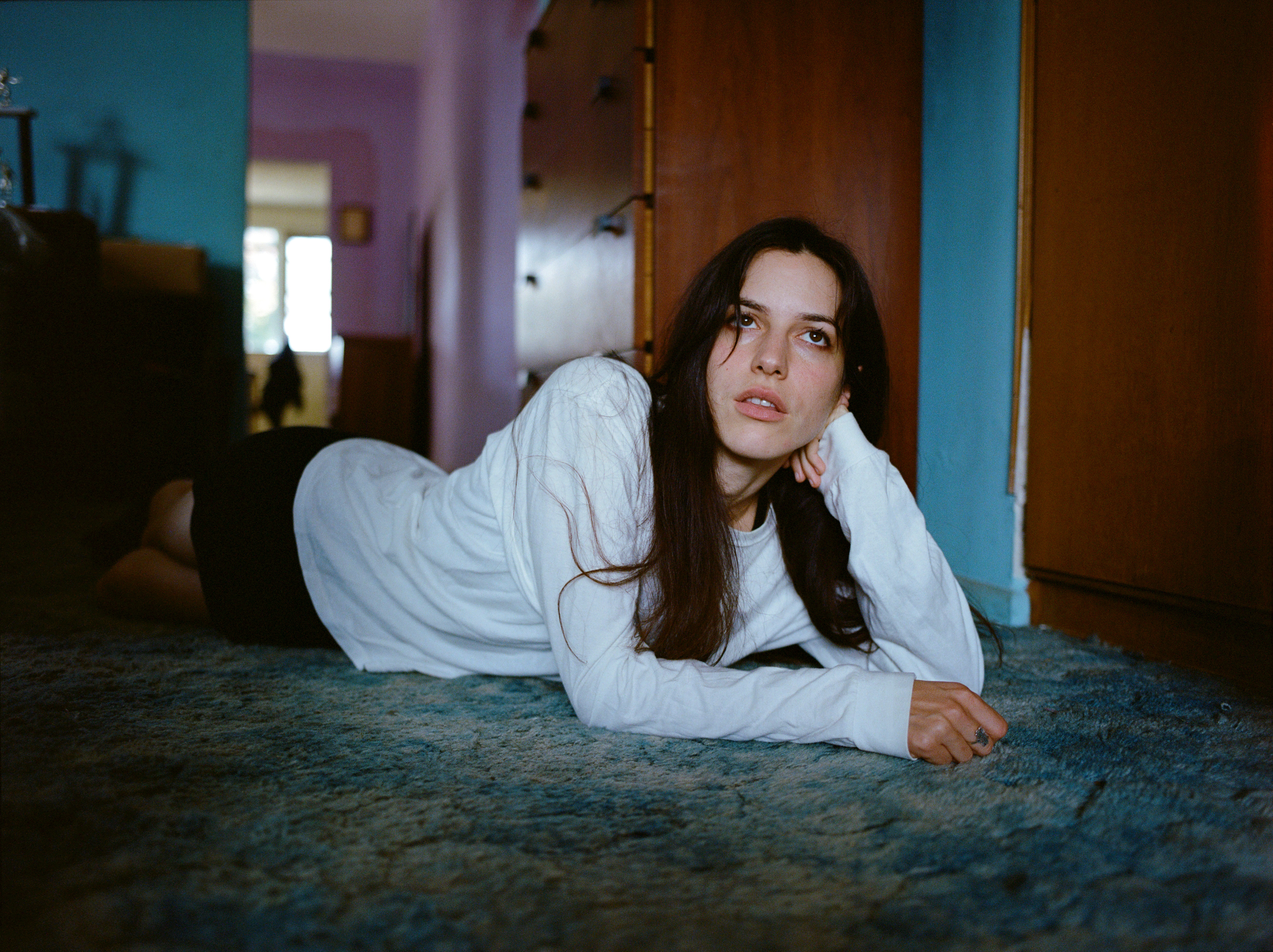
What about “failure”?
And failure? Failure for me is a bit of a hard word because I'd rather say... I think failure is more, well I would say, it’s an attempt. When you are learning, when you are trying, you cannot be failing because in some way, you are still moving ahead.
I really love, too, what you said about your successes, being so intimately personal to you; the feeling of when you've been able to do exactly what you felt you wanted to do, and it all came together.
What journey did this project take you on? What emotions were you channeling or unraveling, or processing?
Many different moments of this past two and a half years– that's how long it took me to put the pieces together.. At the beginning, I was convinced I wanted to do a more like a rave-ish album without drums at all, but then I started adding the drums on my stuff and writing songs with guitar.
I love that song. The bird one.
Thank you!
But yeah, I think this album has many questions and not many answers. It's filled with directions and attempts also, irregularities. It's a depiction of, I guess, what also happened in my life and also me trying to guess what happened - putting it all together.
I think all of your songs, maybe there are some voice notes and things that are in French, but for the most part, I feel like they're all in English. Does that allow you to try and process things that don't make sense to you in French, or is it just your method?
English, for me, was a way to take the pressure away when it comes to lyrics and language. I think I wouldn't allow myself to write things in French because my appreciation of French poetry is so high, and I know that I would never, never meet these expectations myself because I'm a musician first and lyricism follows. It doesn't mean that I don't care if I do something average. I really care, but at least this way I can free myself from feeling self-conscious or critical when I write.
I love how you’ve found a way to create in your own manner with as much respect as possible.
Oh, yeah. I've tried as much as possible.
I noticed you're back working with CaseyMQ. I'm sure you guys have never stopped working together. What's it like working with someone you’re so comfortable with who can help you unpack your life into song?
Casey is amazing to work with because he understands my vision. He's the only person that basically can help me on every aspect of the music from lyrics to melody, elaborating on certain parts, just everything. He can, I think, he can pull out any texture of sound I want, and everything I cannot do, he can do. I don't think I'll ever find someone like that ever to write my songs with him and I'm very grateful to have met him.
How has your work together evolved especially for this project?
For this project sonically, there is one common ground connecting the majority of the songs and that is this idea of finding the perfect loops. This idea came from my listening and admiration of artists like Chuck Person’s with his Ecco Jams and Lorenzo Siemi who I’ve been listening to for a long time who also had those ideas at their forefront.
So instead of elaborating on melodies and harmonies that change and that are patterns that are longer in time, the songs on this album were based on singular patterns that I really liked and then we thought okay let's try to make a song with that.
That’s really cool to hear because now we can all listen for those loops. I feel like things of that nature are what make songs so enjoyable to listen to.
Yea, it’s like the song can go on forever.
Continuing on the idea of collaboration, for this project you have a song with Underscores! How did that come about?
April (of Underscores), she's blown my mind with her previous body of work – the richness of it, the way she masters her productions, and she's doing it all by herself! She's some sort of genius to me. I think I just really trusted her ability to work with anything I sent over to her plus I knew she would bring something more even than her vocals to the track. And she did.
And a song with Bladee! Tell me about that one? Did these collabs happen sort of organically?
So there was nothing organic about these collabs, I'm afraid, because I actually don’t think I've ever met either IRL. [laughs]
Or actually, I met Bladee probably eight years ago or nine years ago. We were both starting our careers, the SoundCloud era and then he did what he did with all these Swedish boys.
Drain Gang?
Yeah, exactly! Those guys like Young Lean and their producers as well, obviously, have always been an influence and an inspiration for all these years, so I've always hoped that one day I could make a song with them to honor the connection I personally have with them.
I've sent a message, I think, to several people from Drain Gang and Bladee answered positively. So, I sent him a track and he was into it, and that's how it happened! I'm super grateful that he accepted because I guess he must be receiving so many messages...
Well, no, actually, I didn't send it out of blue. He did say once, “Oh, it would be nice to do something together”. So it wasn't totally like out of the blue
I think the people are going to lose their minds when they hear the songs! It’s also it a bit like you said, nice when you make these decisions, you can come together and it's greater than you. It's really satisfying.
Yeah, exactly. Super exciting.
This project is currently called choke enough, but since it doesn’t come out until February, do you think that will change? I ask because when your team sent over the album for pre-listening, they said some aspects might still change.
I think I’ll keep it, even though I thought about it recently I was like, “hmm, do I want to change it?”, but I don't have other ideas, so I don't think it's going to change.
I wanted to know, and you can also just leave it as that, but what does that title mean? From my interpretation, it's almost like when you just go through so much, but it doesn’t seem like it’s end so you’re asking yourself when is it enough?
So I guess I have many different things to say. First thing is that there is a song titled “choke enough” on the album that I just love so much. I was really hyped? Hyped is that, can I say that?
Haha, yeah, yeah. Like really excited?
I'm really imitating Americans, with that one, with words I don’t even understand. Hyped [laughs]. But yea, I was very excited about that song and I had all these ideas of titles, but none of them were good enough. So at some point, Casey, again, was like, “Well, if you like “choke enough” that much, you could just call the album that.” It took me a bit of time to solidify that choice because I knew that the phrase doesn't really mean anything in English. It's not something you say.
Yeah, I know. Like what is choke enough? You know?
It’s kind of just gibberish that I sang on the song and it just stayed there. I also like the fact that it doesn't really mean anything and it becomes brutal proof that I don’t always master what I’m trying to say.
Mhm, mhm.
Also, people can, as you just did, try to put their own meaning to it which is always something I appreciate. It’s the search for the drama, which I was leaning towards myself and I lost myself a little bit.
How so?
There’s this feeling of looking for sensations and the idea of being a bit overwhelmed with all of these different paths and not knowing which one to take. The album for me is like a messy bedroom.
The everyday struggle.
Exactly. That's exactly what this song is about. It’s asking, “how far am I ready to go in order to feel alive?” The way you are seeking the drama and getting into these situations, but on the other hand, how are you going to find fulfillment in a more simple life? Not the super sexy aspects of life, but also learning to value very accessible, and tangible moments in life.
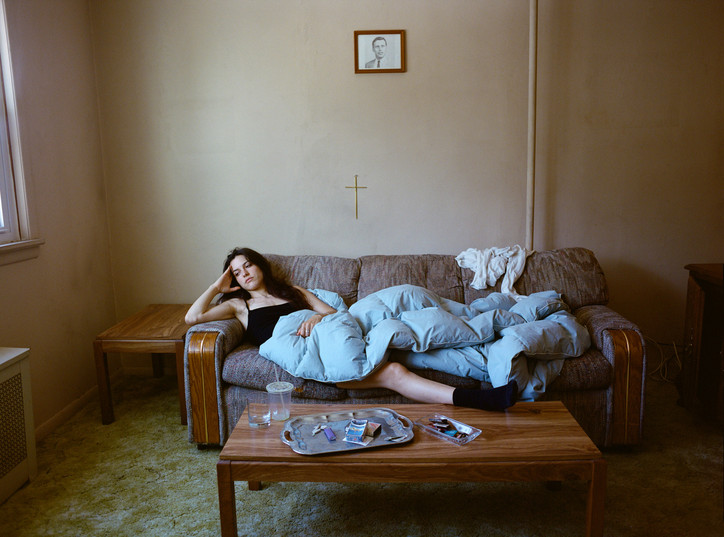
There is a lyric in your song “blade bird” that I mentioned earlier about a romantic relationship, “What can I say? Knew it right away… you are what you are and I feel like a cage…I'll be the one who ends up getting hurt”. Does that tie back into this idea of lengths one goes to feel alive?
Yeah, “blade bird” is literally about this habit that I'm seeing in so many women in general, in my own family and in myself as well. A pattern where you fall in love with people because they represent a sense of freedom, but for me, truly love and relationships are about being able to rely on somebody. So the bird is, for me, a nice image because well, it's a bird, and you cannot put it in a cage. I mean, you could, but that would be pretty sad.
Exactly.
It's like… It's illegal.
It’s like why can’t we be free, but be free together? I don't know.
Be like, respectful, responsible, reliable.